Shows

THE CHARMS OF ANATOLIA. History, Culture, Religions, Legends, Sciences, Space, Health Care, Private Tours...The Charms of Anatolia Podcast Project Announcment 2Send us a textThe Charms of Anatolia reaches an important threshold.This podcast has created for curious minds who feel that history, culture, and geography are not separate — but deeply connected.After traveling from Antalya’s historic Kaleichi to the origins of the universe, from early humanity to ancient civilizations and immersive tour routes, the podcast now sets a clear rhythm and direction for the journey ahead.Each month, we meet once a week:3 intellectual deep-dive episodes1 real-world tour route episodeFrom the Hittites to the Turkish Republic, from...
2026-01-1813 min
THE CHARMS OF ANATOLIA. History, Culture, Religions, Legends, Sciences, Space, Health Care, Private Tours...(v) The Charms of Anatolia Podcast Project Annonsment 2Send us a textThe Charms of Anatolia reaches an important threshold.After traveling from Antalya’s historic Kaleiçi to the origins of the universe, from early humanity to ancient civilizations and immersive tour routes, the podcast now sets a clear rhythm and direction for the journey ahead.Each month, we meet once a week:3 intellectual deep-dive episodes1 real-world tour route episodeFrom the Hittites to the Turkish Republic, from mythology and belief systems to science, culture, and lived geography, this project is designed as a long-term journey — over 100 episodes across two y...
2026-01-1808 min
Veritas AntiquaThe Sun God and Telipinu #1: The Complete Legend | Hittite Mythology (Podcast)Why did the Sea God kidnap the Sun? And how did a cosmic war end with a wedding? 🌊☀️💍In this episode of Veritas Antiqua, we dive into the ancient Hittite myth of "The Sun God and Telipinu." It starts with a catastrophe and ends with a surprising divine negotiation.Join us as we uncover:🌑 The Great Darkness: How the Sea God imprisoned the Sun and froze the world.⚡ The Hero: Why Telipinu, son of the Storm God, was the only one who could save the day.🤝 The Deal: How the terrifying Sea...
2025-12-0203 min
Veritas AntiquaThe Myth of the Vanishing Sun #1: The Complete Legend | Hittite Mythology (Podcast)What happens when the Sun God abandons the world? ☀️❄️In the ancient lands of Anatolia, a terrifying silence falls. The Sun disappears, and a ruthless force named Hahimaş (Frost/Paralysis) takes over. The rivers freeze, the soil becomes barren, and even the gods tremble in despair.In this episode of Veritas Antiqua, we explore one of the most chilling myths of the Hittites:🌍 The Great Freeze: How life, love, and reproduction came to a sudden halt.⚡ Gods in Panic: Why even Teshub, the Storm God, could not fight the cold.🐝 The Tiny S...
2025-11-2502 min
The Turkish History Podcast69 - The Sword of EnmityThe first reign of Keyhüsrev begins. But while the young Sultan struggles to hold Western Anatolia, his half-brother Sulayman II seizes the initiative in the East, driving Keyhüsrev from Konya. Sulayman then sets out to invade Georgia and reunify Anatolia... Ambitions whose rewards others will ultimately reap.
2025-09-1359 min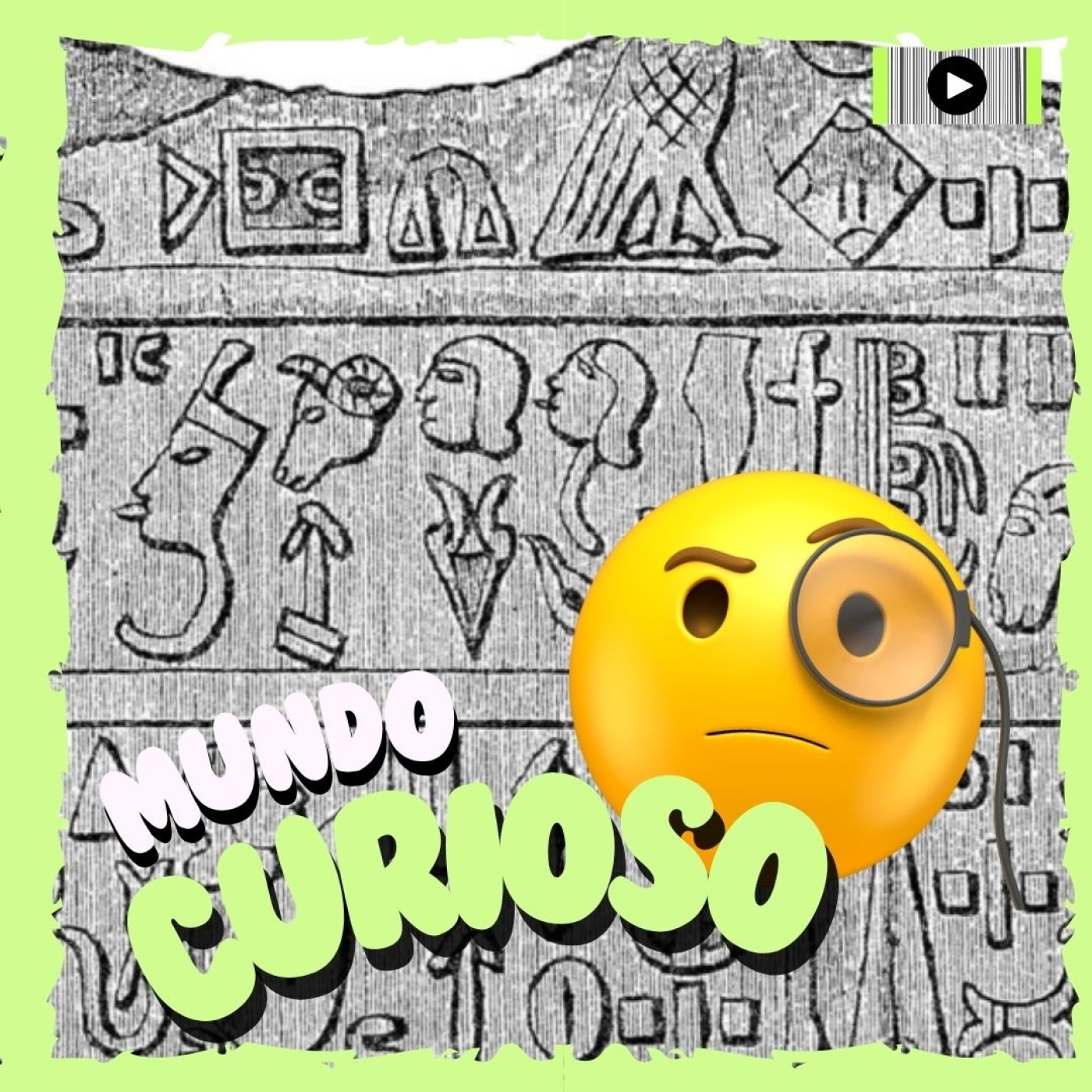
Mundo curiosoAnatolia: el lenguaje que une Oriente y Occidente.En este episodio de Mundo Curioso nos adentramos en Anatolia, una región histórica de Turquía que ha sido cruce de civilizaciones durante milenios. Descubre cómo las lenguas y dialectos que aquí surgieron cuentan la historia de imperios, rutas comerciales y encuentros culturales entre Oriente y Occidente. Desde el hitita hasta el turco moderno, exploramos la evolución del lenguaje, su influencia en la identidad de los pueblos y las huellas que todavía perviven en la vida cotidiana.
Este podcast ha sido generado con inteligencia artificial, pero si prefieres escuchar contenidos con opiniones y experiencias personales, puedes...
2025-08-1203 min
The Turkish History Podcast68 - The Wandering SultanIn the aftermath of the disaster of the march of the Third Crusade across Anatolia, the Sultanate of Rum falls apart. The elderly Sultan of Rum is forced to wander across Anatolia seeking aid to return to the throne. And we say goodbye to the Limping Lion, and bring to the throne the next Roman Sultan - the Sultan who will come to inaugurate the golden age of the Seljuks of Rum.
2025-08-1143 min
Mundo curiosoAnatolia. La espada que cambió la historia.Más allá de ser armas de guerra, las espadas han forjado imperios, definido culturas y encarnado el alma del guerrero. En este episodio viajamos a Anatolia, cuna de las primeras espadas conocidas, para explorar cómo estos objetos pasaron de simples herramientas de combate a símbolos de poder, estatus y espiritualidad. Descubriremos hallazgos asombrosos como las espadas de Arslantepe, el uso del cobre arsenicado, el mítico acero de Damasco o las espadas ceremoniales de los hititas. Una historia de metalurgia, mito y humanidad. Esto no es solo historia: es el inicio del Camino del Acero.
Este podcast ha si...
2025-07-0203 min
Science Magazine PodcastWill your family turn you into a chatbot after you die? Plus, synthetic squid skin, and the sway of matriarchs in ancient AnatoliaFirst up on the podcast, Contributing Correspondent Andrew Curry joins host Sarah Crespi to discuss a pair of Science papers on kinship and culture in Neolithic Anatolia. The researchers used ancient DNA and isotopes from 8000 to 9000 years ago to show how maternal lines were important in Çatalhöyük culture.
● E. Yüncü et al., Female lineages and changing kinship patterns in Neolithic Çatalhöyük, 2025
● D. Koptekin et al., Out-of-Anatolia: Cultural and genetic interactions during the Neolithic expansion in the Aegean, 2025
Next on the show, researchers were able to make a synthetic material t...
2025-06-2644 min
The Turkish History Podcast64 - MyriokephalonWith Kılıç Arslan II consolidating his power over Anatolia, Emperor Manuel Komnenos sets out to reverse the verdict of Manzikert. The Imperial Armies move on to the plateau to rebuild Dorylaeum, and expeditionary forces are sent off to northern Anatolia. And a great Roman army is assembled and set on the road to Konya - a road that will, along the way to Konya, take them to an abandoned fortress guarding a steep mountain pass. A fortress named Myriokephalon and a pass named Tzivitzre...
2025-05-101h 06
The Turkish History Podcast63 - Seven Against KonyaAs the Danishmend Beylik falls into crisis, Kılıç Arslan II sets out to conquer Anatolia. But fearful of the growing power of the Sultan of Rum, Nüreddin Zengi, the greatest force in the Muslim world, sets out to oppose him. An alliance is constructed against Konya - an alliance that will stand for so long as Nüreddin lives... And in Constantinople, Emperor Manuel Komnenos watches the events in Anatolia with growing trepidation, and decides to take a gamble on reversing the verdict of Manzikert.
2025-04-211h 00
The Turkish History Podcast62 - The Lion of the MountainIn Anatolia, Kılıç Arslan II rides East to confront Yağıbasan and begin the reconquest of Anatolia. He makes an alliance with the Saltukid Bey İzzeddin, whose beylik has been raiding Georgia since Manzikert. And in Syria, Nureddin Zengi dispatches to Egypt two obscure Kurdish commanders...
2025-04-1058 min
The Turkish History Podcast55 - The Hunters of MenFollowing the death of the Danishmend King Muhammad, Mesud is finally the pre-eminent Turkish potentate in Anatolia. With the Sultanate of Rum rejuvenated, he now sets out to conquer. Meanwhile, a new Emperor dons the purple in Constantinople, and goes to war with the new master of Turkish Anatolia. And yet again, an army of invasion begins mustering in the West...
2024-12-1856 min
The Turkish History Podcast53 - The King of the NorthWith Mesud installed on the throne of the Sultanate of Rum in Konya, his father-in-law, the Danishmend Bey Emir Ghazi rises to become the overlord of Turkish Anatolia. Emir Ghazi brings the Danishmend beylik to the zenith of its power, but in doing so clears the board of potential rivals to Mesud and provides stability and security to his vassal in Konya. And as imperial authority in the Western half of the Great Seljuk Empire melts down, the Caliph in Baghdad and the Great Sultan of the East dispatch messengers to Anatolia...
2024-11-1358 min
The Turkish History Podcast48 - MerzifonThe Sultanate of Rum lies in ruins following the destruction of the First Crusade and the loss of Western Anatolia to the Byzantine Empire. The Danishmend Beylik led by Gümüştegin Ghazi takes up the mantle of the leading Turkish state in Anatolia, and scores a key victory against the Norman Crusaders in Outremer. And yet more crusaders arrive from the West - both threatening the Sword Lion and providing him with an opportunity to restore his reputation and renew his leadership...
2024-07-131h 04
The Turkish History Podcast47 - The White CityIn the aftermath of the catastrophic Crusader invasion of Anatolia, while the Turks are in crisis, Emperor Alexios Komnenos launches a reconquest. An army led by John Doukas retakes the Aegean coast and Western Anatolia, an army led by Theodore Gabras retakes the Black Sea coast, and the Emperor himself marches out of Pelakanon and into the center of Anatolia. But the Turks rebound and begin to mobilize a response. And the Emperor stops at Akşehir, then called Philomelion, to consider his options.
2024-06-2143 min
The Turkish History Podcast46 - DorylaeumFollowing the fall of İznik, Kılıç Arslan regroups his forces, belatedly calling for aid from across Turkish Anatolia. The Crusaders depart from İznik and begin their march to the Holy Land. Kılıç Arslan springs an ambush near Eskişehir on the Plains of Dorylaeum, leading to disaster yet again. In the aftermath of the great defeat, the Sword Lion is unable to oppose the Crusaders head on, but the war continues as a wide swathe of destruction is cut across Anatolia - and the seeds of a transformed Sultanate of Rum are planted.
2024-05-2846 min
The Turkish History Podcast46 - DorylaeumFollowing the fall of İznik, Kılıç Arslan regroups his forces, belatedly calling for aid from across Turkish Anatolia. The Crusaders depart from İznik and begin their march to the Holy Land. Kılıç Arslan springs an ambush near Eskişehir on the Plains of Dorylaeum, leading to disaster yet again. In the aftermath of the great defeat, the Sword Lion is unable to oppose the Crusaders head on, but the war continues as a wide swathe of destruction is cut across Anatolia - and the seeds of a transformed Sultanate of Rum are planted.
2024-05-2842 min
The Turkish History Podcast44 - The Pyramid of BonesThe People's Crusade invades Anatolia, and the chaotic army of undisciplined peasants is easily destroyed by the forces of the Sultanate of Rum under Ilhan Bey as Kılıç Arslan besieges Malatya. But the chaos and ineptitude of the People's Crusade proves to be a boon to both the Byzantine Emperor and even the now-assembling First Crusade. In Constantinople, Emperor Alexios uses the chaos and the ineptitude of the People's Crusade to bind the arriving First Crusaders to him. And supremely overconfident and unconcerned, Kılıç Arslan ignores the approaching threat and instead stays in Central Anatolia.
2024-04-2536 min
The Turkish History Podcast43 - Deus VultAs Turkish power is entrenched across Anatolia and Kılıç Arslan consolidates the power of the Sultanate of Rum, in Constantinople Emperor Alexios Komnenos calls for aid from the West. The Emperor envisions a relatively large, but still manageable, army of experienced Latin knights of the type that have fought for Byzantium in the past in order to retake Anatolia. But his call for aid coincides with a papal reform movement in Rome seeking to entrench the power of the Papacy, and Pope Urban II uses the opportunity to raise a great host of holy warriors. The Pandora's box is ope...
2024-04-1646 min
The Turkish History Podcast42 - The Red WeddingAs Kılıç Arslan sits in prison in Esfahan, Emperor Alexios Komnenos attempts to restore imperial authority on the coasts of Anatolia, even if the plateau itself remains lost to him. Constantinople tangles with the Black Sea beylik of Karategin and the Marmara beylik of İlhan. In İzmir, the rebel Turkish Roman General Çaka Bey creates the first Turkish navy and establishes an Aegean beylik - becoming the supreme Turkish potentate in Western Anatolia. This situation is upended as Kılıç Arslan returns to claim the Sultanate. And Emperor Alexis begins to contemplate from where he could possible raise the troops to...
2024-03-291h 02
The Turkish History Podcast39 - The First Roman SultanFollowing Manzikert, the civil war in Byzantium and the failure of the Roman Empire to retake Anatolia, the first Turkish beyliks emerge in Anatolia. In the anarchy caused by the collapse of the Roman military apparatus, bands of Turks begin making alliances with the settled elites of Anatolia, offering them protection for a price. Soon the Turks are invited into the cities of Anatolia, replacing the now-vanished Roman military to become the lords of new principalities - beyliks. In the east of Anatolia, numerous beyliks emerge - the Mengucekids, the Danishmands, the Saltukids and the Artukids. But in the West...
2024-02-081h 00
The Turkish History Podcast38 - Welcome to AnatoliaWe resume the narrative, and begin by introducing the land that will come to be the homeland of the Turks.In the aftermath of the Battle of Manzikert, the Roman state falls into chaos. As a result of civil war, invasion and rebellion, Imperial authority collapses over much of Anatolia. And the Turks begin to enter Anatolia, and the seeds of the coming Beyliks, and even a Sultanate, are sown.
2024-01-2854 min
The Dirt PodcastI Hope This Tablet Finds You Well: It's a Hittite Episode!This week we venture off to Bronze Age Anatolia to pay a visit to the Land of Hatti, and snoop through the royal mailbags. Want to support the show? SUBSCRIBE to our back catalog of bonus content for $5 a month after a one-week free trial at: https://the-dirt-podcast.captivate.fm/supportShow notes:The Hittites (The Met)The Hittite Language and Its Decipherment (Bulletin of the Canadian Society for Mesopotamian Studies)The Routledge Handbook of the Peoples and Places of Ancient Western Asia (via Google Books)
2024-01-0347 min
The Turkish History Podcast27 - The NawakiyyaAfter Alp Arslan's ascension to the throne, the Heroic Lion is forced to ride East to put down a nascent revolt in Khorasan and to defeat his brother Kavurt (twice). Alp Arslan also bounces back to the Caucasuses to re-invade Georgia. At the same time, tensions rise between the increasingly "cooking" court and the tribes, and a new tribal confederation of Turkmen, the Nawakiyya, forms in northern Syria. At times allied with the Shia Emirs of Aleppo and even the Fatimid Caliphs of Egypt, the Nawakiyya raid deep into Anatolia. Meanwhile, the constant Turkish raiding of Anatolia results in a ne...
2023-08-041h 00
The Dirt PodcastLet's Gö to Neolithic AnatoliaThe Neolithic period in Anatolia (modern-day Turkey) saw lots of changes happening. Hunter-gatherers gradually adopted a less schleppy lifestyle, embracing agriculture. This happened over thousands of years, and wasn't quite the dramatic "rise of cities and civilization" that often describes the Neolithic. But speaking of cities...what's up with those T-shaped pillars and animal carvings, huh? It's five years in, pals, and we're finally talking about Göbekli Tepe, with our signature flavor of "hey what about the people that lived there, though?" We discuss the idea of the "Neolithic Revolution," the brainchild(e) of archaeologist V.G...
2023-08-0256 min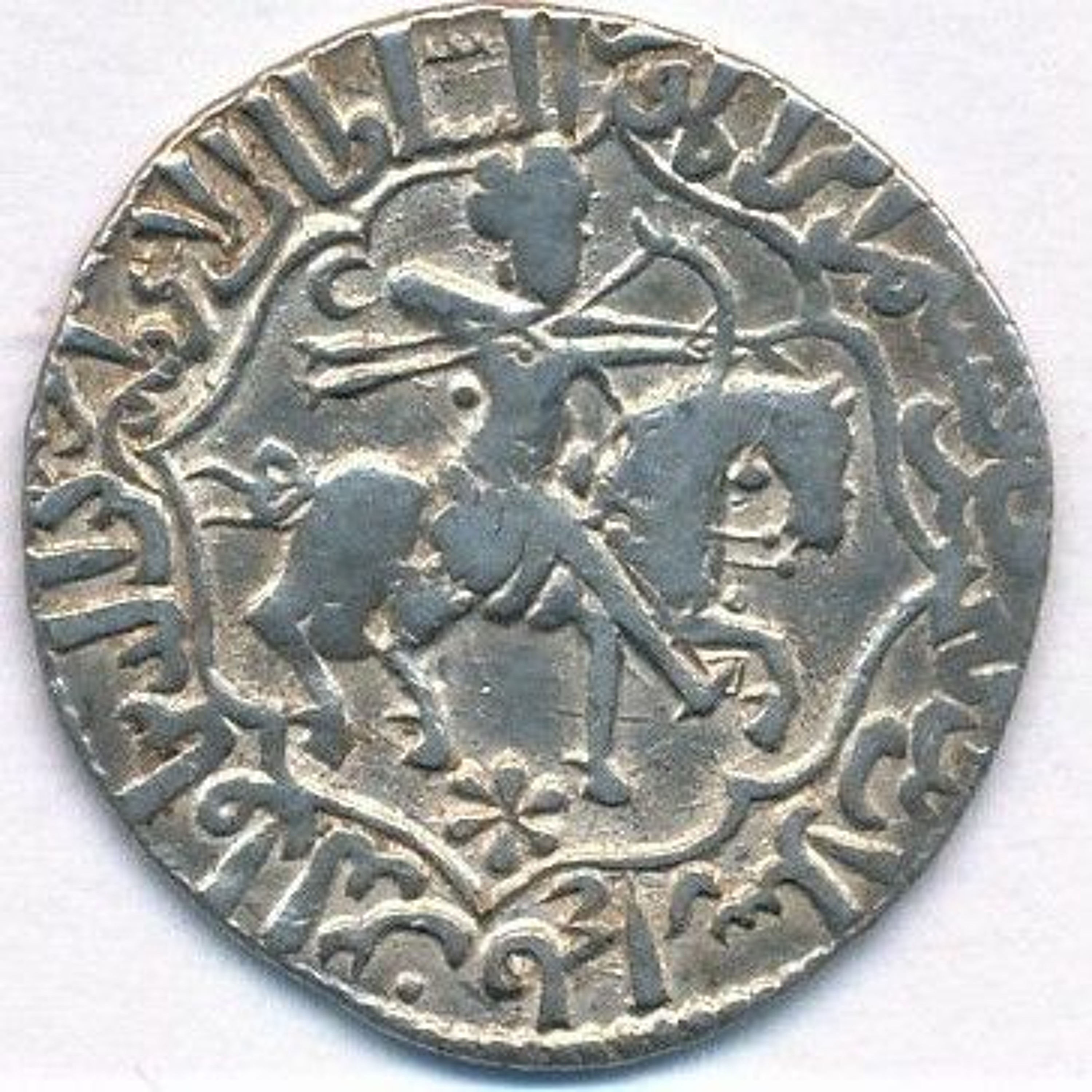
Ottoman History PodcastThe Origins of Ottoman History | Rudi LindnerE511 | Among the most murky periods of the Ottoman dynasty's six-century history is the period of its very emergence in medieval Anatolia. In this episode, we talk to Rudi Lindner about his attempts to understand this early period of Ottoman history and the development of hypotheses and methods concerning the investigation of Ottoman origins over the past century of scholarship. We also reflect on what decades of research and teaching has taught Lindner about sources for history and the questions they require us to ask.
More at https://www.ottomanhistorypodcast.com/2021/08/rudi.html
Rudi Lindner is Professor Emeritus of History...
2021-08-2049 min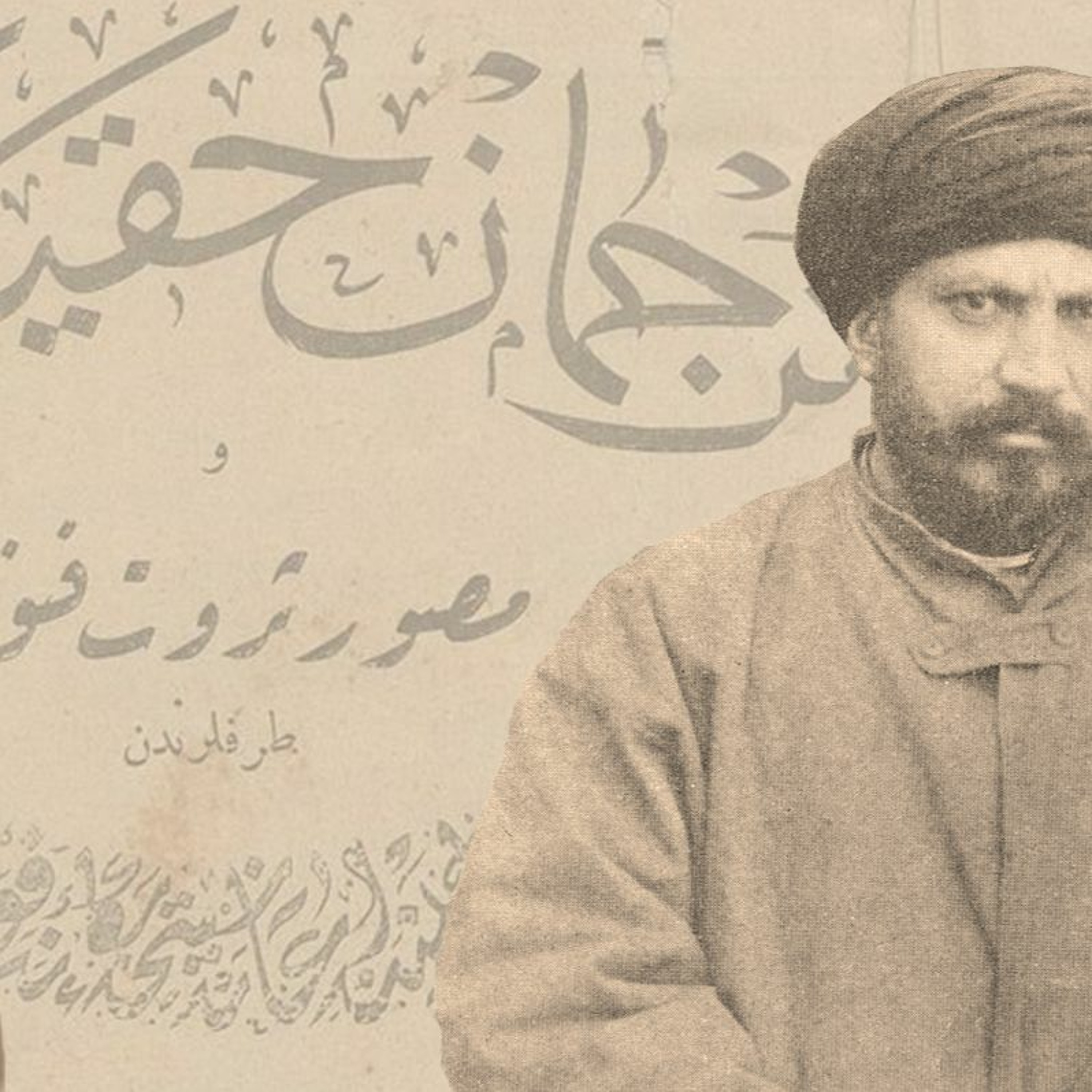
Ottoman History PodcastRecovering God's Intent in the Modern Age | Monica RingerE491 | What is Islamic modernism, and how did authors of this movement position themselves vis-á-vis other 19th century intellectual movements? In this episode, we examine how Islamic modernism was more than a product of 19th century social and political reforms or even an attempt at using Islamic language to justify such reforms. Rather, Islamic modernism was a substantive theological reform movement, fueled by the belief that God's intent could be recovered through correct and contextual readings of the past. As a result, Islamic modernists helped give rise not only to new understandings of Islam but also to new understandings o...
2021-01-2833 min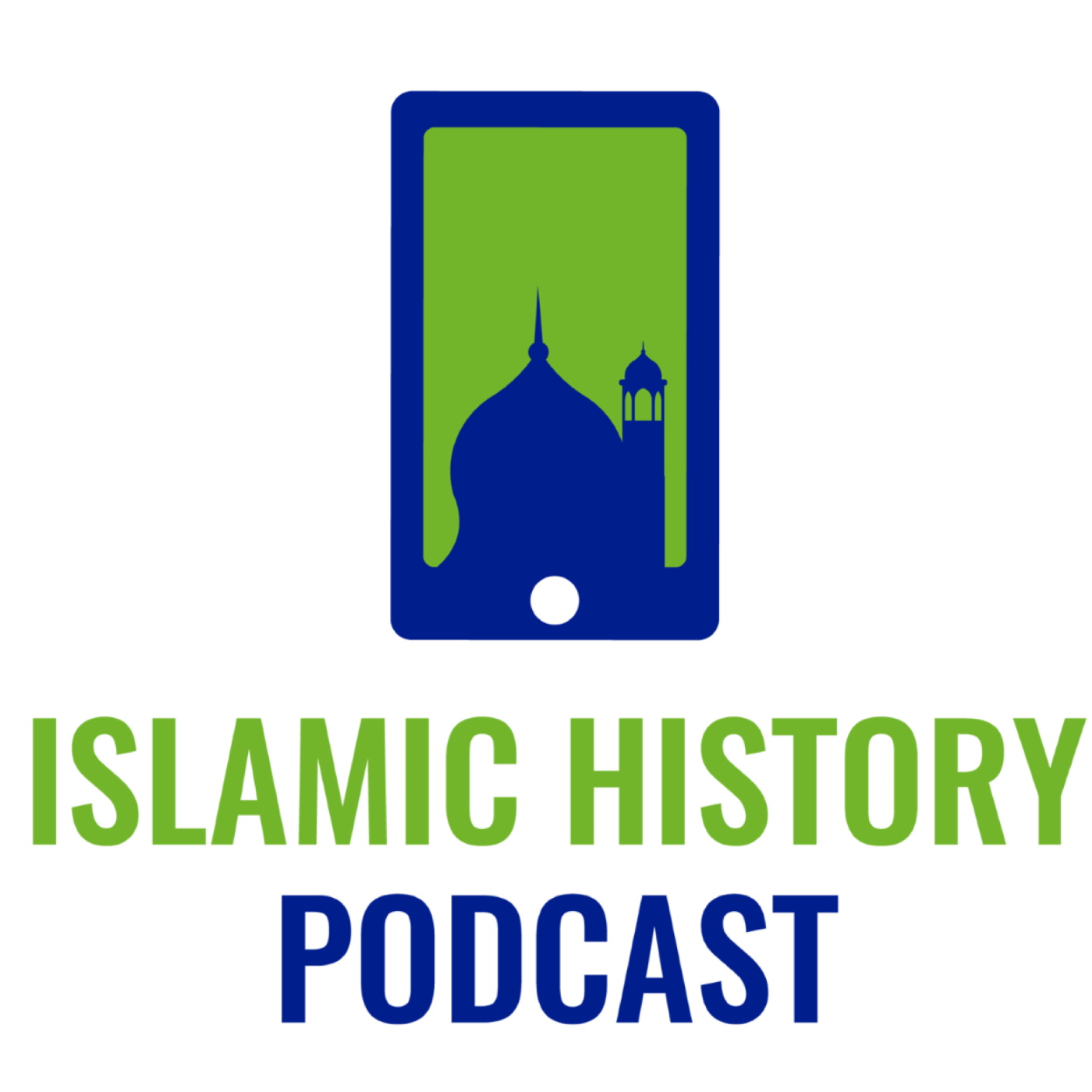
Islamic History Podcast6-2: Syria And TurkeyPrince Faisal really wants Syria but neither the French nor the British want to give it to him.
Outraged by the Turkish resistance in Anatolia, Lloyd George forces the puppet Ottoman Sultan to sign the Treaty of Sevres.
Looking for more content? Become a member at Islamic History Exclusive.
2021-01-2029 min
Islamic History Podcast6-1: Anatolia And IraqThe partition and military occupation of Ottoman territories by Allied powers following World War I set the stage for a century of conflict that defines the region to this day. In this episode, we explore how the British and French betrayal of the Arab Revolt led to the fracturing of the Middle East, leaving leaders like Sharif Hussein with broken promises and divided lands.
We delve into the chaotic British occupation of Iraq, where colonial administrators struggled to stitch together the disparate Ottoman provinces of Basra, Baghdad, and Mosul into a single state, ignoring deep religious and...
2021-01-1330 min
The Hellenistic Age Podcast049: Barbarians of the Black Sea - The Galatians & Odrysian ThraceIn this episode, we will be looking at two regions of Asia Minor and the Black Sea: the first is Galatia, home to the descendants of the Celtic tribes who marauded their way through Greece before being settled in central Anatolia, remaining an enclave of Celtic culture while serving as mercenaries (and foes) to the Hellenistic kingdoms. The second is the Odrysian Kingdom of Thrace, a formerly powerful entity along the Bosporus which, underneath the reign of the ambitious King Seuthes III (~330 – 300/295), would attempt to restore their previous greatness during the Wars of the Diadochi. Using these two case studies, we...
2020-08-1735 min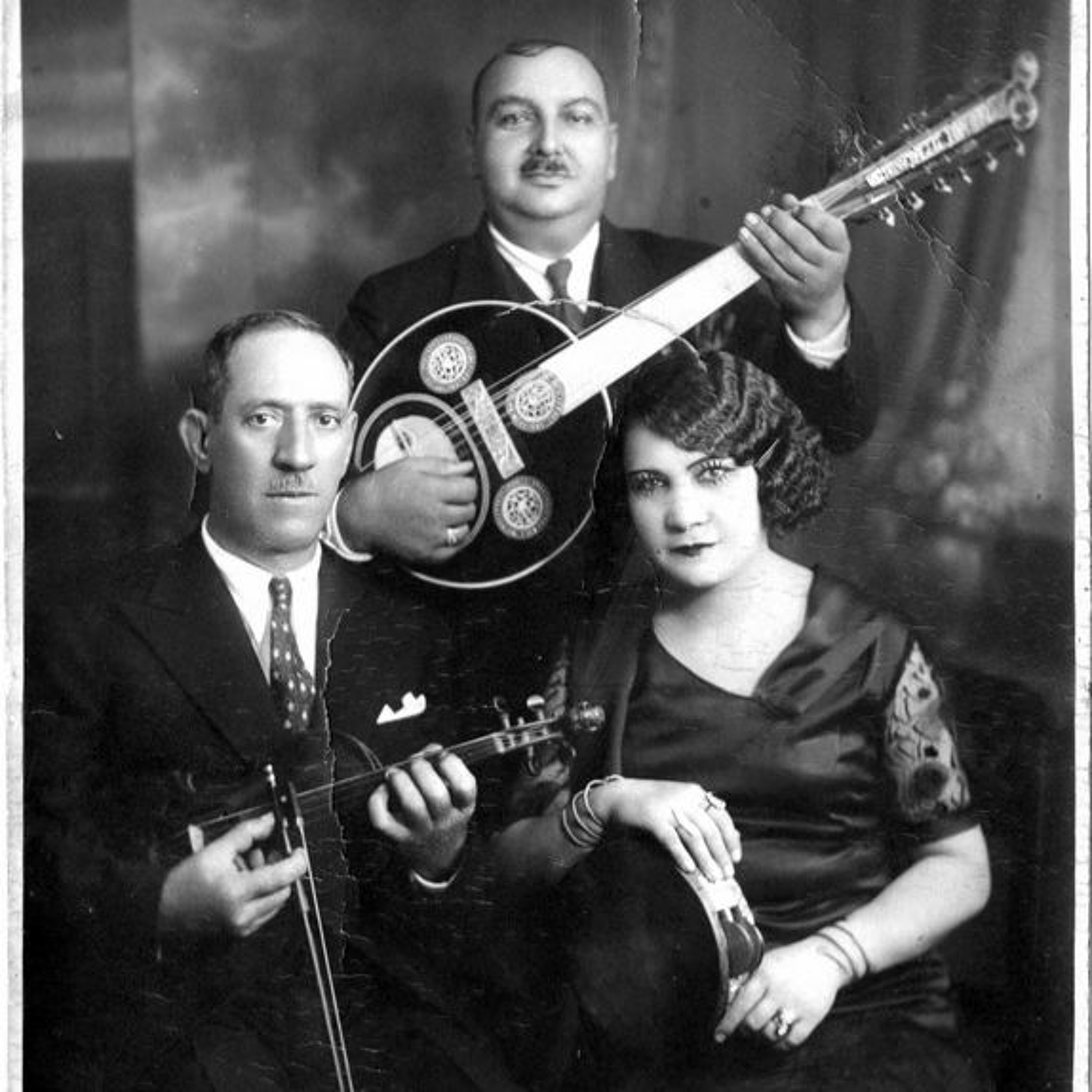
Ottoman History PodcastThe Journeys of Ottoman Greek Music | Panayotis LeagueE463 | What is Greek music? For our guest Panayotis League, it's no one thing. Rather, it is diversity that defines the many regional musical traditions of Greece and the broader Greek diaspora. In this episode, we discuss League's ethnomusicological research on Greek music in diaspora, and we explore the history and transformation of Ottoman Greek music before and after the exchange of populations between Turkey and Greece. As League explains, Greek music in the Ottoman Empire was inextricably linked to the musical traditions of neighboring Turkish, Armenian, and Sephardic communities. However, the First World War, the Second Greco-Turkish War, and...
2020-05-0341 min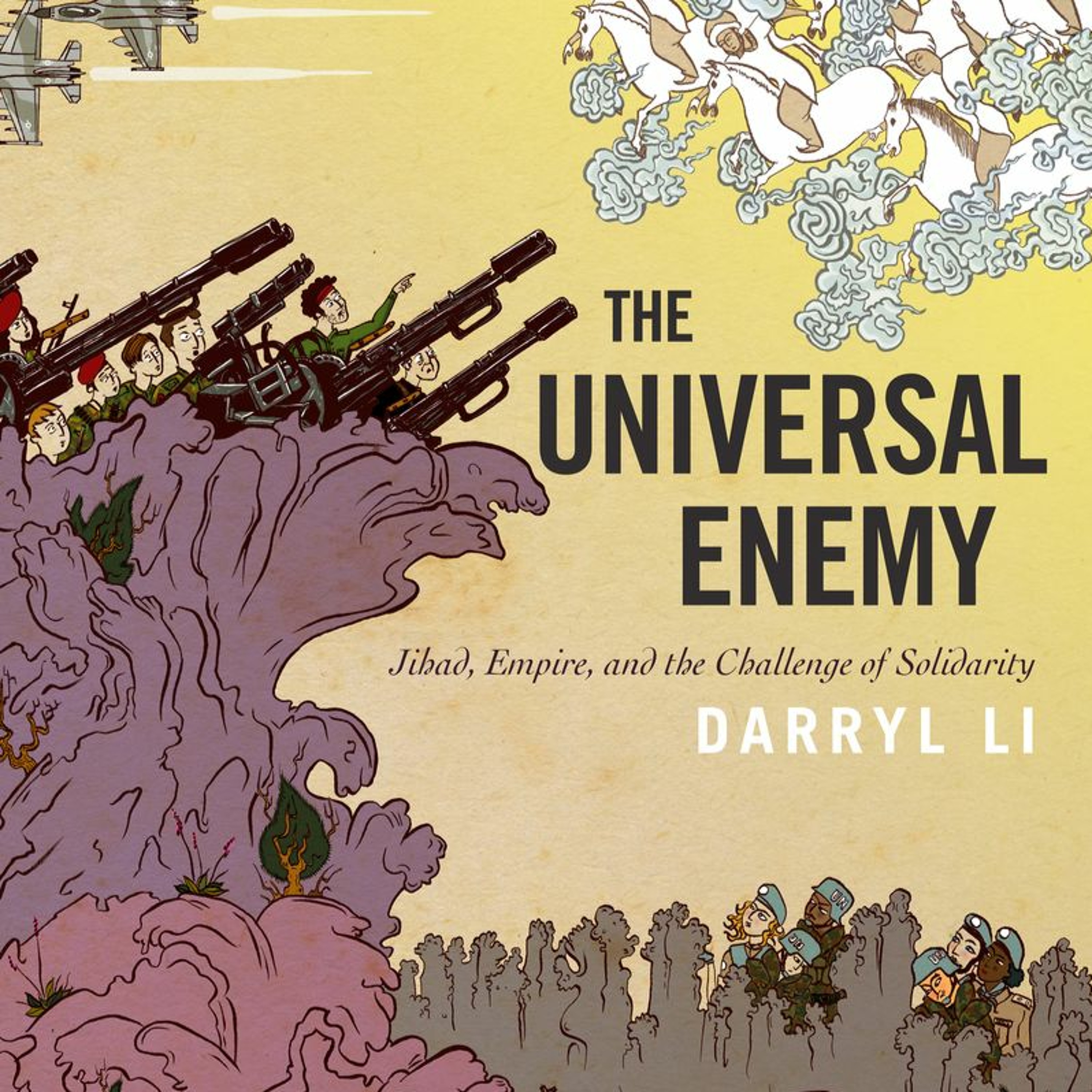
Ottoman History PodcastThe Bosnian War, Jihad, and American Empire | Darryl LiE459 | In this episode, anthropologist and lawyer Darryl Li discusses his new book The Universal Enemy: Jihad, Empire, and the Challenge of Solidarity. Based on ethnographic and archival research, the work explores the Bosnian jihad, in which several thousand Muslim volunteers ventured to the area to fight in response to the mass atrocities against Muslims in the midst of the Bosnian War of 1992 to 1995. Through this lens, Li critically engages with many of the omnipresent yet unexamined concepts associated with Muslim mobility and jihad. Or, as he pithily put it, he aimed "to write a book about jihad that didn't...
2020-04-1541 min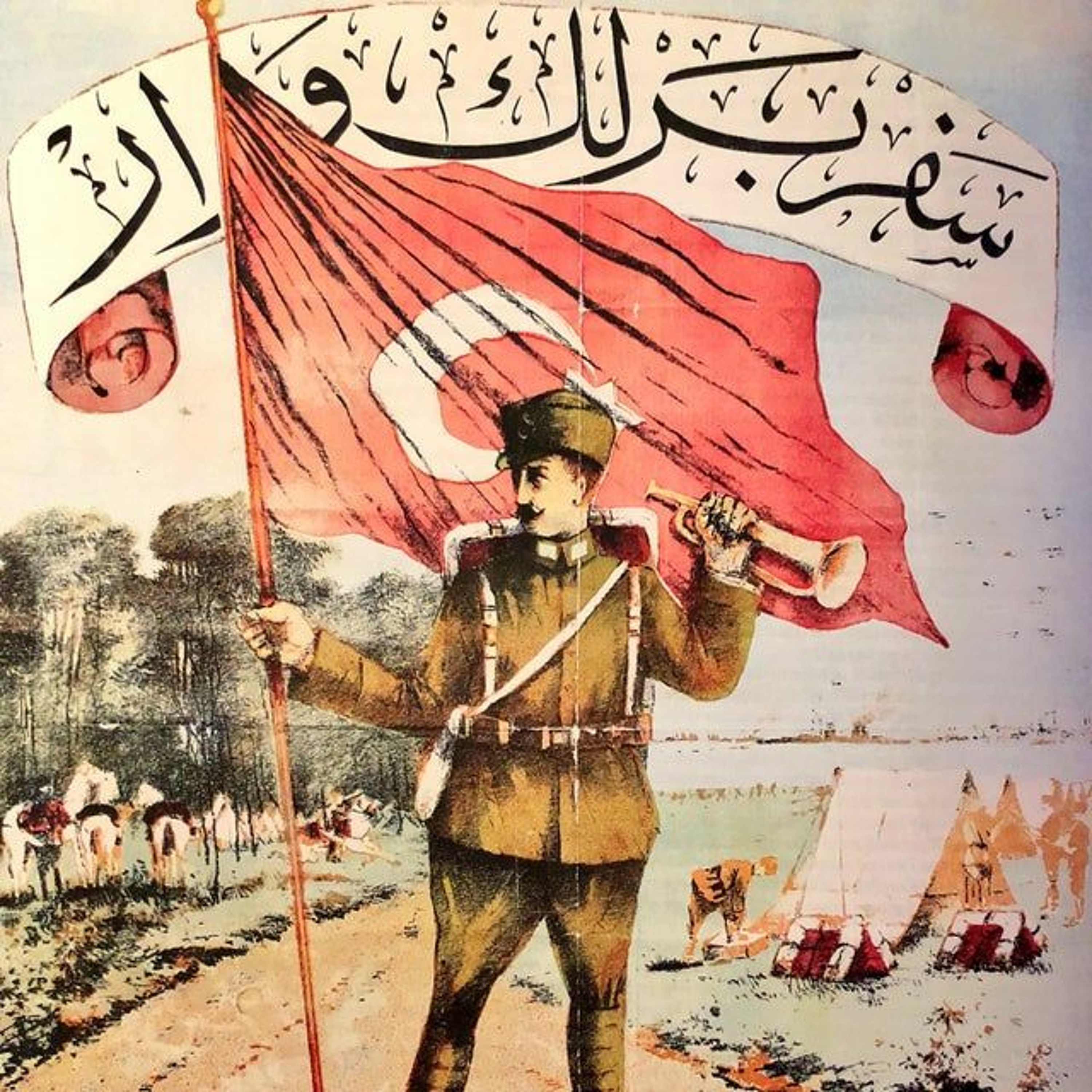
Ottoman History PodcastFighting Under the Same BannerE451 | What did it mean to individuals from different ethnic and religious backgrounds to participate in World War I under the same banner? What do personal narratives tell us about the World War I? Accounts of soldiers, officers, and women as well as non-textual sources such as medals and postcards provide novel perspectives into thinking about the experience of the Great War. This episode brings together interviews conducted at Boğaziçi University during the Fighting Under the Same Banner: Memories from the Ottoman Theater of the Great War Conference in September 2019.
Yaşar Tolga Cora is currently an Assistant Pro...
2020-02-2245 min
Anatolia PodcastNebe suresi 1.sayfa1.Amme yetesâelûn(yetesâelûne).
2.Anin nebeil azîm(azîmi).
3.Ellezî hum fîhi muhtelifûn(muhtelifûne).
4.Kellâ se ya’lemûn(ya’lemûne).
5.Summe kellâ se ya’lemûn(ya’lemûne).
6.E lem nec’alil arda mihâdâ(mihâden).
7.Vel cibâle evtâdâ(evtâden).
8.Ve halaknâkum ezvâcâ(ezvacen).
9.Ve cealnâ nevmekum subâtâ(subâten).
10.Ve cealnâl leyle libâsâ(libâsen).
11.Ve cealnân nehâre meâşâ(meâşen).
12.Ve beneynâ fevkakum seb’an şidâdâ(şidâden).
13.Ve cealnâ sirâcen vehhâcâ(vehhâc...
2020-02-1900 min
Anatolia PodcastMulk 1. sayfaBismillahirrahmanirrahim
1. Tebârakellezî bi yedihil mulku ve huve alâ kulli şey’in kadîr(kadîrun).
2. Ellezî halakal mevte vel hayâte li yebluvekum eyyukum ahsenu amelâ(amelen), ve huvel azî zul gafûr(gafûru).
3. Ellezî halaka seb'a semâvâtin tibâkâ(tibâkan), mâ terâ fî halkır rahmâni min tefâvut(tefâvutin), ferciıl basara hel terâ min futûr(futûrin).
4. Summerciıl basara kerrateyni yenkalib ileykel basaru hâsien ve huve hasîr(hasîrun).
5. Ve lekad zeyyennâs semâed dunyâ bi mesâbîha ve cealnâhâ rucûmen l...
2020-02-1900 min
Anatolia PodcastRahman suresi 1.sayfaBismillahirrahmanirrahim
1. Errahmân(u)
2. ‘Alleme-lkur-ân(e)
3. Ḣaleka-l-insân(e)
4. ‘Allemehu-lbeyân(e)
5. Eşşemsu velkameru bihusbân(in)
6. Ve-nnecmu ve-şşeceru yescudân(i)
7. Ve-ssemâe rafe’ahâ ve vada’a-lmîzân(e)
8. Ellâ tatġav fî-lmîzân(i)
9. Ve akîmû-lvezne bilkisti velâ tuḣsirû-lmîzân(e)
10. Vel-arda veda’ahâ lil-enâm(i)
11. Fîhâ fâkihetun ve-nnaḣlu żâtu-l-ekmâm(i)
12. Velhabbu żû-l’asfi ve-rrayhân(i)
13. Febi-eyyi âlâ-i rabbikumâ tukeżżibân(i...
2020-02-1900 min
Anatolia PodcastYasin 1.sayfa1. Yâsîn
2. Vel Kur’ân-il hakîm
3. İnneke leminel murselîn
4. Alâ sırâtin mustakîm
5. Tenzîlel azîzirrahîm
6. Litunzira kavmen mâ unzire âbâuhum fehum gâfilûn
7. Lekad hakkal kavlu alâ ekserihim fehum lâ yu’minûn
8. İnnâ cealnâ fî a’nâkihim aglâlen fehiye ilel ezkâni fehum mukmehûn
9. Ve cealnâ min beyni eydîhim sedden ve min galfihim sedden feağşeynâhum fehum lâ yubsirûn
10. Ve sevâun aleyhim eenzertehum em lem tunzirhum lâ yu’minûn
11. inn...
2020-02-1900 min
Anatolia PodcastAmenerrasulüBismillahirrahmanirrahim
"Rahman ve rahim olan Allah' ın Adıyla"
Amenerrasûlü bimâ unzile ileyhi min rabbihî vel mu’minûn(mu’minûne), kullun âmene billâhi ve melâiketihî ve kutubihî ve rusulih(rusulihî), lâ nüferrigu beyne ehadin min rusulih(rusulihî), ve gâlû semi’nâ ve eta’nâ ğufrâneke Rabbenâ ve ileykel masîr(masîru). Lâ yükellifullâhu nefsen illâ vüs’ahâ lehâ mâ kesebet ve aleyhâ mektesebet rabbenâ lâ tuâhıznâ in nesînâ ev ahta’nâ, rabbenâ ve lâ tahmil aleynâ ısran kemâ hameltehu alellezîne min gablinâ, rabbenâ ve lâ tuhammilnâ mâ lâ tâkate lenâ bih(bihî), va...
2020-02-1900 min
Anatolia PodcastHuvallahullezi
Huvallahullezi la ilahe illa huve,
Alimul gaybi veş şehadeh, huver rahmanur rahim.
Huvallahullezi la ilahe illa huve, elmelikul kuddusus selamul mu'minul muheyminul azizul cebbarul mutekebbir, subhanallahi amma yuşrikun.
Huvallahul halikul bariul musavviru lehul esmaul husna, yusebbihu lehu ma fis semavati vel ard ve huvel azizul hakim.
2020-02-1900 min
Anatolia PodcastAyetelkursi
Allâhu lâ ilâhe illâ huve’l-hayyu’l-kayyûm.
Lâ te’huzuhû sinetun ve lâ nevm.
Lehû mâ fi’s-semâvâti ve mâ fi’l-ardı men zellezî yeşfe’u ‘ındehû illâ bi iznih.
Ya’lemu mâ beyne eydîhim ve mâ halfehum ve lâ yuhîtûne bi şey’in min ‘ılmihî illâ bimâ şâe vesi’a kursiyyuhu’s-semâvâti ve’larda ve lâ yeûduhû hıfzuhumâ ve huve’l-‘aliyyu’l-‘azîm.
2020-02-1900 min
Anatolia PodcastDuha
Ved duha
.Vel leyli izâ secâ
.Mâ veddeake rabbuke ve mâ kalâ.
Ve lel âhıretu hayrun leke minel ûlâ.
Ve le sevfe yu’tîke rabbuke fe terdâ.
E lem yecidke yetîmen fe âvâ.
Ve vecedeke dâllen fe hedâ.
Ve vecedeke âilen fe agnâ.
Fe emmel yetîme fe lâ takher.
Ve emmes sâile fe lâ tenher.
Ve emmâ bi ni’meti rabbike fe haddis.
2020-02-1900 min
Anatolia PodcastInşirah-Bismillâhi’r-Rahmâni’r-Rahîm.
1- Elem neşrah leke sadrâk.
2- Ve vada’nâ ’anke vizrâk.
3- Elleziy enkada zahrâk.
4- Ve refa’nâ leke zikrâk.
5- Feinne me’al’usri yusrâ.
6- İnne me’al’usri yusrâ.
7- Feizâ ferağte fensab.
8- Ve ila Rabbike ferğab.
2020-02-1900 min
Anatolia PodcastTin
Vet tîni vez zeytûn(zeytûni).
Ve tûri sînîn(sînîne).
Sinâ dağına andolsun,
Ve hâzel beledil emîn(emîni).
Lekad halaknel insâne fî ahseni takvîm(takvîmin).
Summe redednâhu esfele sâfilîn(sâfilîne).
İllellezîne âmenû ve amilûs sâlihâti fe lehum ecrun gayru memnûn(memnûnin).
Fe mâ yukezzibuke ba’du bid dîn(dîni).
E leysallâhu bi ahkemil hâkimîn(hâkimîne)
2020-02-1900 min
Anatolia PodcastAlak
Ikra’bismi rabbikellezî halak(halaka).
Halakal insâne min alak(alakın).
Ikra’ ve rabbukel ekrem(ekremu).
Ellezî alleme bil kalem(kalemi).
Allemel insâne mâ lem ya’lem.
Kellâ innel insâne le yatgâ.
En reâhustagnâ.
İnne ilâ rabbiker ruc’â.
E reeytellezî yenha
Abden izâ sallâ.
E reeyte in kâne alel hudâ
Ev emera bit takvâ.
E reeyte in kezzebe ve tevella
E lem ya’lem bi ennellâhe yerâ.
Kellâ le in lem yentehi le nesfean bin nâsıyeh(nâsıyeti).
Nâsiyetin kâzibetin hâtıeh(hâtıetin).
Felyed’u nâdiyeh(nâdiyehu).
Sened’uz zebâniyeh(zebâniyete).
...
2020-02-1800 min
Anatolia PodcastKadrBismillâhi’r-Rahmâni’r-Rahîm.
1. İnnâ enzelnâhu fî leyletil kadr.
2. Ve mâ edrâke mâ leyletul kadr.
3. Leyletul kadri hayrun min elfi şehr.
4. Tenezzelul melâiketu ver rûhu fîhâ bi izni rabbihim min kulli emrin.
5. Selâmun, hiye hattâ matlaıl fecr.
2020-02-1700 min
Anatolia PodcastBeyyine
Lem yekunillizîne keferû min ehlil kitâbi vel muşrikîne munfekkîne hattâ te’tiye humul beyyineh(beyyinetu).
Resûlun minallâhi yetlû suhufen mutahharah(mutahhareten)
Fîhâ kutubun kayyim.
Ve mâ teferrekallezîne ûtûl kitâbe illâ min ba’di mâ câet humul beyyineh(beyyinetu).
Ve mâ umirû illâ li ya’budûllâhe muhlisîne lehud dîne hunefâe ve yukîmûs salâte ve yu’tûz zekâte ve zâlike dînul kayyimeh(kayyimeti).
İnnellezîne keferû min ehlil kitâbi velmuşrikîne fî nâri cehenneme hâlidîne fîhâ, ulâike hum şerrul beriyeh(beriyyeti)
İnne...
2020-02-1700 min
Anatolia PodcastZilzal
İzâ zulziletil ardu zilzâlehâ.
Ve ahrecetil ardu eskâlehâ.
Ve kâlel insânu mâ lehâ.
Yevme izin tuhaddisu ahbârehâ.
Bi enne rabbeke ehvâlehâ.
Yevme izin yasdurun nâsu eştâten li yurev a’mâlehum.
Fe men ya’mel miskâle zerretin hayren yereh(yerehu).
Ve men ya’mel miskâle zerretin şerren yereh(yerehu).
2020-02-1700 min
Anatolia PodcastAdiyat
Vel âdiyâti dabhâ(dabhan).
Fel mugîrâti subhâ(subhan).
Fel mugîrâti subhâ(subhan).
Fe eserne bihî nak’â(nak’en).
Fe vesatne bihî cem’â(cem’an).
İnnel insâne li rabbihî le kenûd(kenûdun)
Ve innehu alâ zâlike le şehîd(şehîdun).
Ve innehu li hubbil hayri le şedîd(şedîdun).
E fe lâ ya’lemu izâ bu’siramâ fîl kubûr(kubûri).
Ve hussıle mâ fîs sudûr(sudûri).
İnne rabbehum bihim yevme izin le habîr(habîrun).
2020-02-1700 min
Anatolia PodcastFilBismillâhi’r-Rahmâni’r-Rahîm.
1- Elemtera keyfe fe’ale Rabbuke bi-ashâbi’l-fîl.
2- Elem yec’al keydehum fî tadlîl.
3- Ve ersele ’aleyhim tayran ebâbîl.
4- Termîhim bi-hicâratin min siccîl.
5- Fece’alehum ke’asfin me’kûl.
2020-02-1700 min
Anatolia PodcastKaria
El kâriah(kâriatu).
Mel kâriah(kâriatu).
Ve mâ edrâke mel kâriah(kâriatu).
Yevme yekûnun nâsu kel ferâşil mebsûs(mebsûsi).
Ve tekûnul cibâlu kel ıhnil menfûş(menfuşi).
Fe emmâ men sekulet mevâzînuh(mevâzînuhu).
Fe huve fî îşetin râdiyeh(râdiyetin).
Ve emmâ men haffet mevâzînuh(mevâzînuhu).
Fe ummuhu hâviyeh(hâviyetun)
Ve mâ edrâke mâhiyeh(mâhiyeh).
Nârun hâmiyeh(hâmiyetun).
2020-02-1600 min
Anatolia PodcastTekasur-Bismillâhi’r-Rahmâni’r-Rahîm.
1- Elhâkumut tekâsur.
2- Hattâ zurtumul mekâbir.
3- Kellâ sevfe ta’lemûn.
4- Summe kellâ sevfe ta’lemûn.
5- Kellâ lev ta’lemûne ilmel yakîn
6- Le teravunnel cahîm.
7- Summe le teravunnehâ aynel yakîn.
8- Summe le tus’elunne yevmeizin anin naîm.
2020-02-1600 min
Ottoman History PodcastThe Mystical Turn in Ottoman Political Thought
Episode 444
with Hüseyin Yılmaz
hosted by Nir Shafir and Alp Eren Topal
Download the podcast
Feed | iTunes | GooglePlay | SoundCloud
In medieval Anatolia, political authority could be found in surprising places. In this podcast, we speak to Hüseyin Yılmaz about the political role of Sufi leaders in the thirteenth and fourteenth centuries. We explore how these shaykhs could become powerful political leaders in their own right and how the nascent Ottoman state dealt with their power, ultimately participating in what Yılmaz calls "the mystical turn" in Ottoman political thought.
« Click for Mo
2020-01-1200 min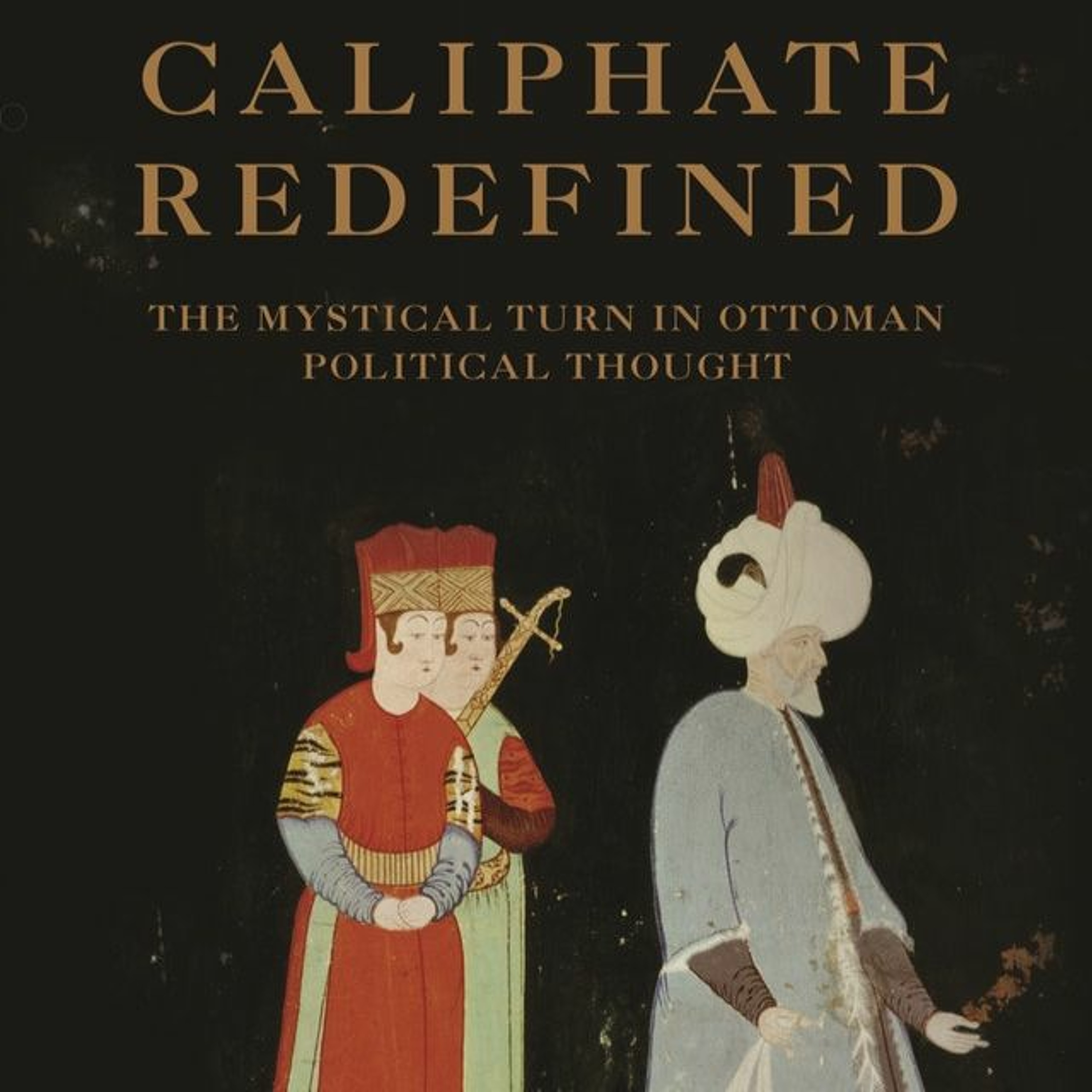
Ottoman History PodcastThe Mystical Turn in Ottoman Political Thought | Hüseyin YılmazE444 | In medieval Anatolia, political authority could be found in surprising places. In this podcast, we speak to Hüseyin Yılmaz about the political role of Sufi leaders in the thirteenth and fourteenth centuries. We explore how these shaykhs could become powerful political leaders in their own right and how the nascent Ottoman state dealt with their power, ultimately participating in what Yılmaz calls "the mystical turn" in Ottoman political thought.
More at https://www.ottomanhistorypodcast.com/2020/01/the-mystical-turn-in-ottoman-political.html
Hüseyin Yılmaz is currently an associate professor in Department of History and Art History, and director of Ali V...
2020-01-1230 min
Anatolia PodcastKafirunBismillâhi’r-Rahmâni’r-Rahîm.
1- Kul yâ eyyuhe’l-kâfirûn.
2- Lâ a’budu mâ ta’budûn.
3- Ve lâ entum âbidûne mâ a’bud.
4- Velâ ene âbidun mâ abettum.
5- Velâ entum âbidûne mâ a’bud.
6- Lekum dînukum veliye dîn.
2019-10-3000 min
Anatolia PodcastLehebBismillâhi’r-Rahmâni’r-Rahîm.
1- Tebbet yedâ ebî lehebin ve tebb.
2- Mâ ağnâ ‘anhu mâluhû ve mâ keseb.
3- Seyaslâ nâran zâte leheb.
4- Vemraetuhû hammâlete’l-hatab.
5- Fî cîdihâ hablun min mesed.
2019-10-2900 min
Anatolia PodcastNasrBismillâhi’r-Rahmâni’r-Rahîm.
1- İzâ câe nasrullâhi ve’l-fethu.
2- Ve raeyte’n-nâse yedhulûne fî dînillâhi efvâcâ.
3- Fe sebbih bi-hamdi Rabbike vestağfirhu innehû kâne tevvâbâ.
2019-10-2700 min
Anatolia PodcastNasBismillâhi’r-Rahmâni’r-Rahîm.
1- Kul e’ûzu bi-Rabbi’n-nâs.
2- Meliki’n-nâs.
3- İlâhi’n-nâs.
4- Min şerri’l-vesvâsi’l-hânnâs.
5- Ellezî yuvesvisu fî sudûri’n-nâs.
6- Mine’l-cinneti ve’n-nâs.
2019-10-2700 min
Anatolia PodcastHumeze1- Veylun li kulli humezetin lumezeh
2- Ellezî cemea mâlen ve addedeh
3-Yahsebu enne mâlehû ahledeh
4-Kellâ le yunbezenne fîl hutameh
5-Ve mâ edrâke mel hutameh
6-Nârullâhil mûkadeh
7-Elletî tettaliu alel ef’ideh
8-İnnehâ aleyhim mu’sadeh
9- Fî amedin mumeddedeh
2019-10-2701 min
Anatolia PodcastMaunBismillâhi’r-Rahmâni’r-Rahîm.
1- Eraeytellezî yukezzibu bi’d-dîn.
2- Fezâlike’l-lezî yedu’ul-yetîm.
3- Ve lâ yehuddu alâ ta’âmi’l-miskîn.
4- Feveylun lil-musallîn.
5- Ellezînehum an salâtihim sâhûn.
6- Ellezînehum yurâûn.
7- Ve yemne’ûne’l-mâ’ûn.
2019-10-2700 min
Anatolia PodcastKureyşBismillâhi’r-Rahmâni’r-Rahîm.
1- Li îlâfi kurayş.
2- Îlâfihim rihlete’ş-şitâi ve’s-sayf.
3- Felya’budû Rabbe hâze’l-beyt.
4- Ellezî et’amehum min cû’in ve âmenehum min havf.
2019-10-2700 min
Anatolia PodcastKevserBismillâhi’r-Rahmâni’r-Rahîm.
1- İnnâ a’taynâ ke’l-kevser.
2- Fesalli li-Rabbike ve’nhar.
3- İnne şâni’eke huve’l-ebter
2019-10-2700 min
Anatolia PodcastIhlasBismillâhi’r-Rahmâni’r-Rahîm.
1- Kul huvallâhu ehad.
2- Allâhu’s-samed.
3- Lem yelid ve lem yûled.
4- Ve lem yekun lehû kufuven ahad.
2019-10-2700 min
Anatolia PodcastFelakBismillâhi’r-Rahmâni’r-Rahîm.
1- Kul e’ûzu bi-Rabbi’l-felak.
2- Min şerri mâ halak.
3- Ve min şerri ğasigın izâ vegab.
4- Ve min şerri’n-neffâsâti fi’l-ugad.
5- Ve min şerri hâsidin izâ hased.
2019-10-2700 min
Anatolia PodcastFatiha1- Bismillâhi’r-Rahmâni’r-Rahîm.
2- Elhamdulillâhi Rabbi’l-âlemîn.
3- Er-Rahmâni’r-Rahîm.
4- Mâliki yevmi’d-dîn.
5- İyyâke na’budu ve iyyâke neste’în.
6- İhdine’s-sırâta’l-mustakîm.
7- Sırâta’l-lezîne en’amte aleyhim. Ğayri’l-meğdûbi aleyhim ve le’d-dâllîn.
2019-10-2701 min
Anatolia PodcastAsrBismillâhi’r-Rahmâni’r-Rahîm.
1- Vel'asr.
2- İnnel'insâne lefî husr.
3- İllellezîne âmenû ve amilûssâlihâti vetevâ savbilhakkı vetevâ savbissabr.
2019-10-2700 min
Anatolia PodcastAmentuAmentu billahi ve melâiketihi ve kutubihî ve rusulihî ve'l yevmi'l-âhiri ve bi'l-kaderi hayrihî ve şerrihi mine'llâhi teâlâ ve'l-ba'su ba'de'l mevt hakkun. Eşhedu en lâ ilâhe illAllâh ve eşhedu enne Muhammeden abduhû ve rasûluh.
2019-10-2100 min
Anatolia PodcastKunutAllâhumme innâ nesteînuke ve nestağfiruke ve nestehdik. Ve nu'minu bike ve netûbu ileyk. Ve netevekkelu aleyke ve nusni aleykel-hayra kullehu neşkuruke ve lâ nekfuruke ve nahleu ve netruku men yefcuruk.
Allâhumme iyyâke na'budu ve leke nusalli ve nescudu ve ileyke nes'a ve nahfidu nercû rahmeteke ve nahşâ azâbeke inne azâbeke bilkuffâri mulhık.
2019-10-2001 min
Anatolia PodcastRabbenaRabbenâ âtina fid'dunyâ haseneten ve fil'âhirati haseneten ve kınâ azâbennâr.
Rabbenâğfirlî ve li-vâlideyye ve lil-Mu'minine yevme yekûmu'l hisâb. Bi rahmetike yâ erhamerrâhimîn.
2019-10-2000 min
Anatolia PodcastBarikAllâhumme salli alâ Muhammedin ve alâ âli Muhammed. Kemâ salleyte alâ İbrahime ve alâ âli İbrahim. İnneke hamidun mecîd.
2019-10-2000 min
Anatolia PodcastSalliAllâhumme salli alâ Muhammedin ve alâ âli Muhammed. Kemâ salleyte alâ İbrahime ve alâ âli İbrahim. İnneke hamidun mecîd.
2019-10-2000 min
Anatolia PodcastEttehiyyâtuEttehiyyâtu lillâhi vessalevâtu vettayibât. Esselâmu aleyke eyyuhen-Nebiyyu ve rahmetullahi ve berakâtuhu. Esselâmu aleynâ ve alâ ibâdillâhis-Sâlihîn. Eşhedu en lâ ilâhe illallâh ve eşhedu enne Muhammeden abduhû ve Rasuluh.
2019-10-2000 min
Anatolia PodcastSubhanekeSubhânekellâhumme ve bi hamdik ve tebârakesmuk ve teâlâ cedduk ve lâ ilâhe ğayruk.
2019-10-2000 min
Not If I Reboot You First!31: Lindsay Climbs the Hittite Line of Succession
This week we're travelling back 3000 years to the ancient Hittite Empire. Lindsay's rebooting Red River/Anatolia Story, an Isekai series from the 90s. She tells Tanner about how it got her hooked on Manga with the powerful character developments, historically badass women, and all her favourite Bronze Age civilizations. The two also discuss reading manga in the wrong direction, the Babylonian receipt archive, and raiding the supermarket for tin.
This week's friendship promo is @VREcast!
Our cover art is by Alex aka @ptchew, and her work can be found on ptchew.com. Our theme music is "The Metamorphosis [Instrumental]" by Osiris Sa...
2019-04-2154 min
Ottoman History PodcastSurvivor Objects and the Lost World of Ottoman Armenians
Episode 407
with Heghnar Watenpaugh
hosted by Emily Neumeier
Download the podcast
Feed | iTunes | GooglePlay | SoundCloud
The genre of biography usually applies to people, but could a similar approach be applied to an object? Can a thing have a life of its own? In this episode, Heghnar Watenpaugh explores this question by tracing the long journey of the Zeytun Gospels, a famous illuminated manuscript considered to be a masterpiece of medieval Armenian art. Protected for centuries in a remote church in eastern Anatolia, the sacred book traveled with the waves of people displaced by the Armeni...
2019-03-2500 min
Imagination & Diaspora: Best of 2019Survivor Objects and the Lost World of Ottoman Armenians
Episode 407
with Heghnar Watenpaugh
hosted by Emily Neumeier
Download the podcast
Feed | iTunes | GooglePlay | SoundCloud
The genre of biography usually applies to people, but could a similar approach be applied to an object? Can a thing have a life of its own? In this episode, Heghnar Watenpaugh explores this question by tracing the long journey of the Zeytun Gospels, a famous illuminated manuscript considered to be a masterpiece of medieval Armenian art. Protected for centuries in a remote church in eastern Anatolia, the sacred book traveled with the waves of people displaced by the Armeni...
2019-03-2500 min
The Visual PastSurvivor Objects and the Lost World of Ottoman Armenians
Episode 407
with Heghnar Watenpaugh
hosted by Emily Neumeier
Download the podcast
Feed | iTunes | GooglePlay | SoundCloud
The genre of biography usually applies to people, but could a similar approach be applied to an object? Can a thing have a life of its own? In this episode, Heghnar Watenpaugh explores this question by tracing the long journey of the Zeytun Gospels, a famous illuminated manuscript considered to be a masterpiece of medieval Armenian art. Protected for centuries in a remote church in eastern Anatolia, the sacred book traveled with the waves of people displaced by the Armeni...
2019-03-2500 min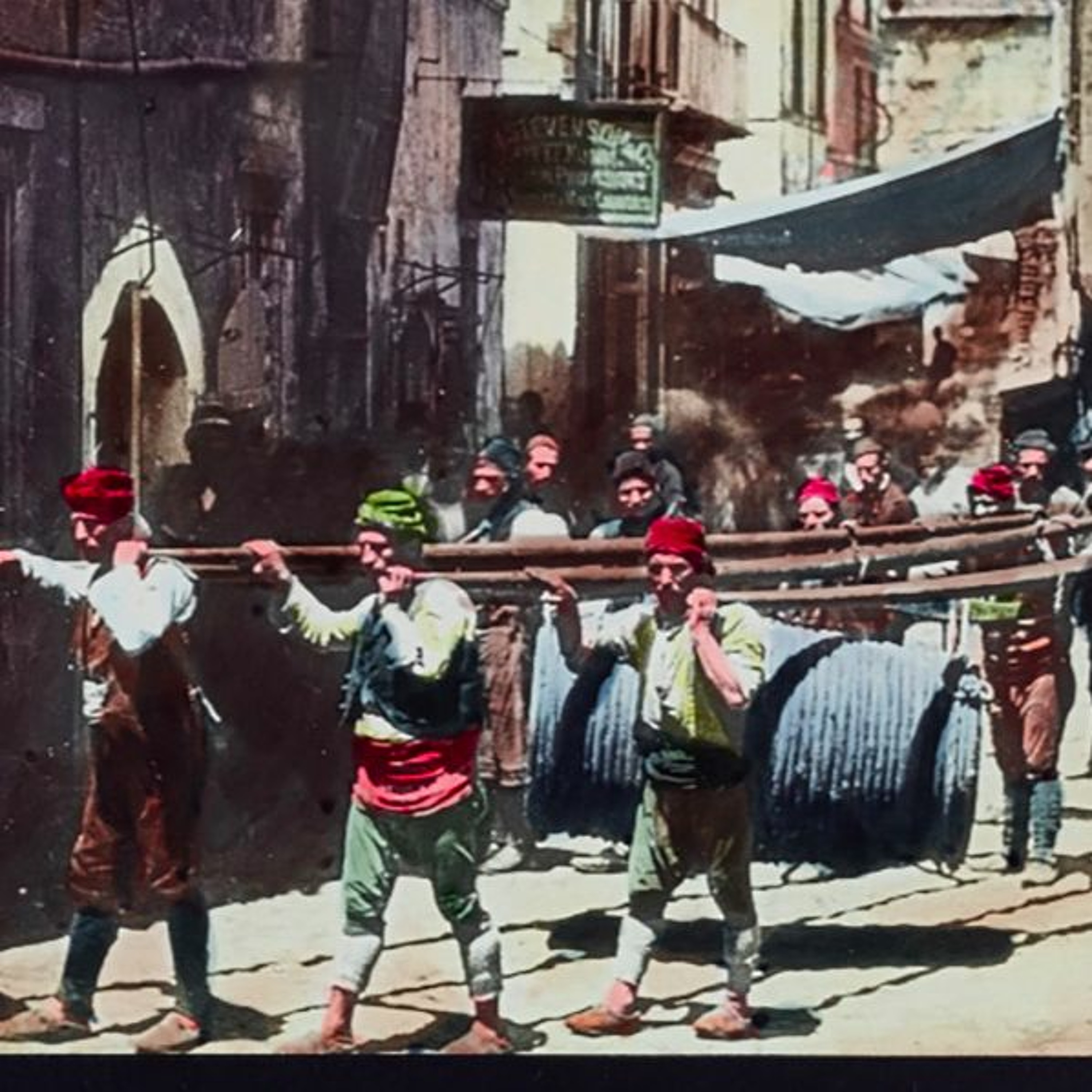
Ottoman History PodcastTurkish Economic Development Since 1820 | Şevket PamukE 398 | What forces have governed Turkey's economic growth over the past two centuries? In this episode we speak with Şevket Pamuk about development in Turkey since 1820. In the late Ottoman period, low barriers to trade, agrarian exports, and European financial control defined the limits of economic expansion, while the transition from Empire to Republic brought more inward-looking policies aimed at protecting domestic industries. From the 1980s until the present, the Turkish government came to embrace the set of policy recommendations now called the Washington Consensus, defined by trade liberalization, privatization, and de-regulation. We discuss key moments during each of these p...
2019-01-1736 min
Ottoman History PodcastDervish Piety and Alevism in Late Medieval Anatolia
Episode 359
with Zeynep Oktay Uslu
hosted by Matthew Ghazarian and Işın Taylan
Download the podcast
Feed | iTunes | GooglePlay | SoundCloud
In this episode, we explore the evolution of Abdal and Bektashi doctrine from the 14th to 17th centuries. The Abdals of Rum and the Bektashis were two dervish groups in Anatolia who by the 16th century would merge to become the Bektashi Sufi order. Many Bektashi beliefs and practices are also inter-connected with those of Alevi communities. By taking a closer look at Abdal and Bektashi poetry, we examine how poetry, fiction, and othe...
2018-04-2000 min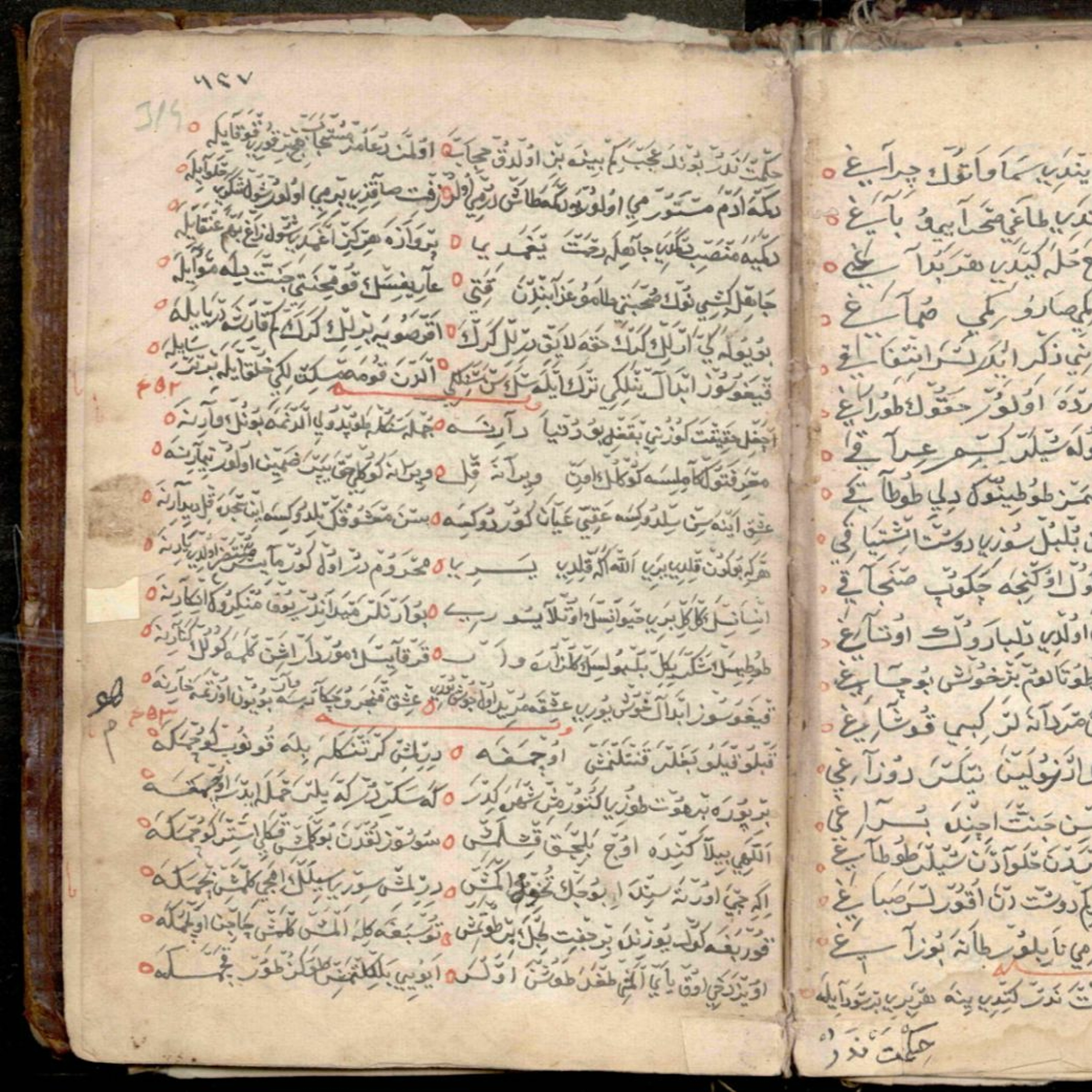
Ottoman History PodcastDervish Piety and Alevism in Late Medieval Anatolia | Zeynep Oktay UsluE359 | In this episode, we explore the evolution of Abdal and Bektashi doctrine from the 14th to 17th centuries. The Abdals of Rum and the Bektashis were two dervish groups in Anatolia who by the 16th century would merge to become the Bektashi Sufi order. Many Bektashi beliefs and practices are also inter-connected with those of Alevi communities. By taking a closer look at Abdal and Bektashi poetry, we examine how poetry, fiction, and other aspects of dervish piety evolved into the core beliefs of contemporary Alevism in Turkey.
More at https://www.ottomanhistorypodcast.com/2018/04/dervish-piety.html
Zeynep Oktay Uslu...
2018-04-2043 min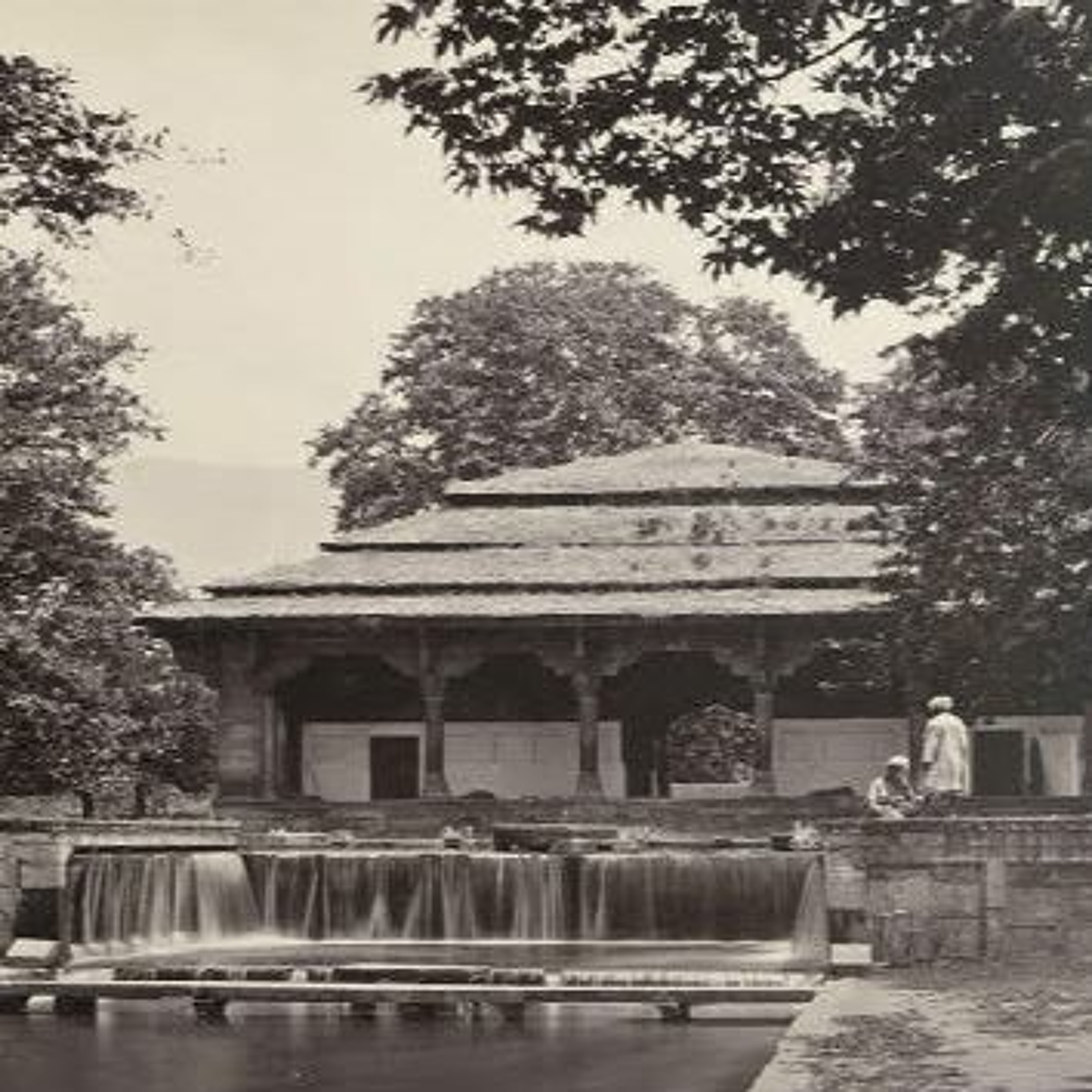
Ottoman History PodcastThe Gardens of Mughal Kashmir | Jan HaenraetsE346 | Over the course of the seventeenth century, Kashmir became a valley adorned with gardens as Mughal emperors and nobles built garden after garden across the valley floor and mountainous landscape. In this episode, we speak with landscape architect and preservation specialist Jan Haenaerts on his research into the history of these gardens. We discuss not only their historical formation and usage of these spaces but also how they differed from the more well known Mughal gardens surrounding the Taj Mahal and Humayun's tomb. In the second half of the episode we also explore the difficulty of conserving historical gardens...
2018-02-1254 min
Ottoman History PodcastThe Tanzimat in Ottoman Cappadocia
Episode 339
with Aylin de Tapia
hosted by Susanna Ferguson, Seçil Yilmaz and Ella Fratantuono
Download the podcast
Feed | iTunes | GooglePlay | SoundCloud
In this episode, we consider the story of the Tanzimat reforms from the perspective of rural Cappadocia, a region in central Anatolia now famous as a tourist destination. In the nineteenth century, Cappadocia was home not only to the Muslim subjects who made up the majority of Anatolia's population but to a large population of Orthodox Christians as well. How did these communities experience the Tanzimat period and how did their relationships to each ot...
2017-12-0300 min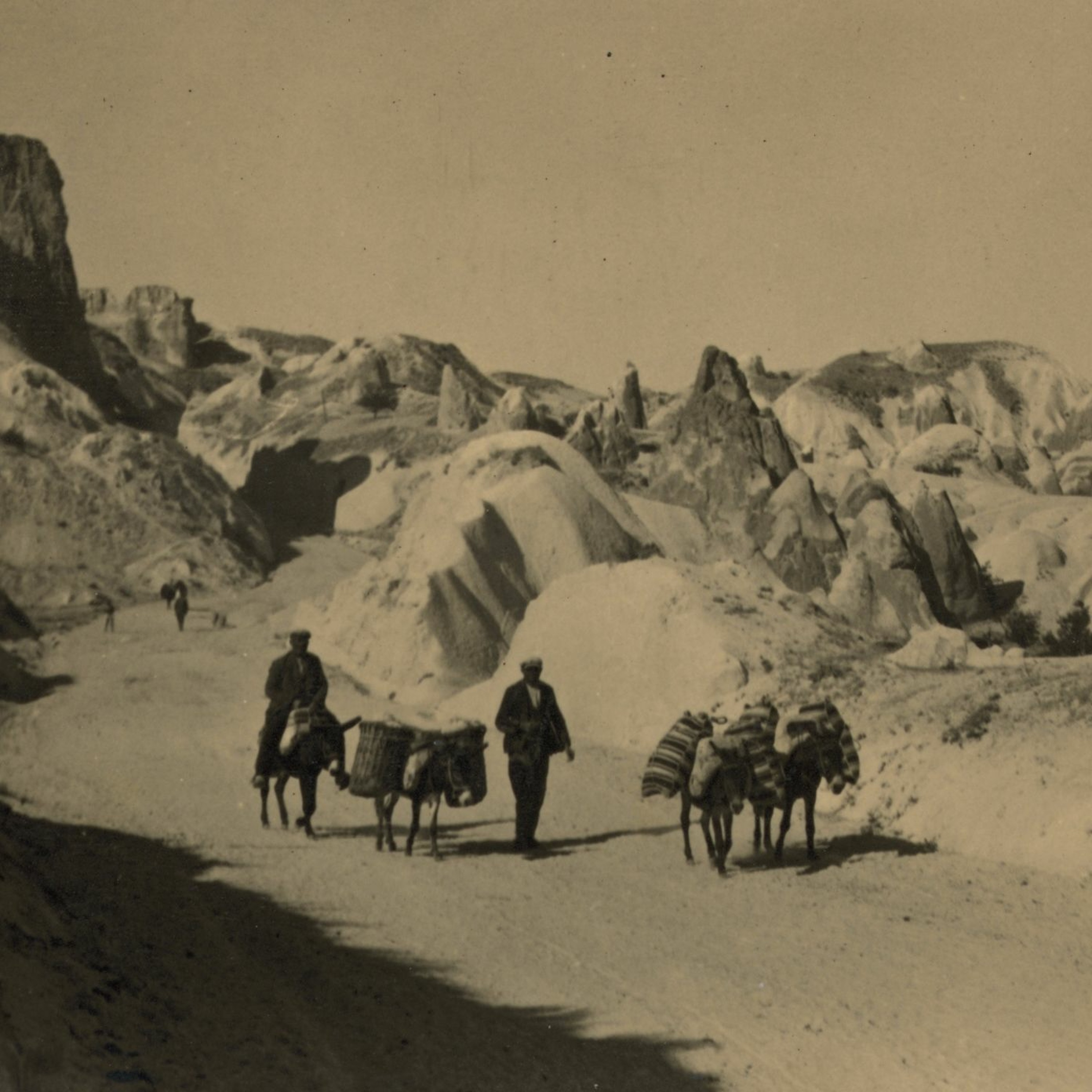
Ottoman History PodcastThe Tanzimat in Ottoman Cappadocia | Aylin de TapiaE339 | In this episode, we consider the story of the Tanzimat reforms from the perspective of rural Cappadocia, a region in central Anatolia now famous as a tourist destination. In the nineteenth century, Cappadocia was home not only to the Muslim subjects who made up the majority of Anatolia's population but to a large population of Orthodox Christians as well. How did these communities experience the Tanzimat period and how did their relationships to each other and to the state change between 1839 and the demise of the Ottoman Empire?
More at http://www.ottomanhistorypodcast.com/2017/09/cappadocia.html
Aylin de Tapia...
2017-12-0338 min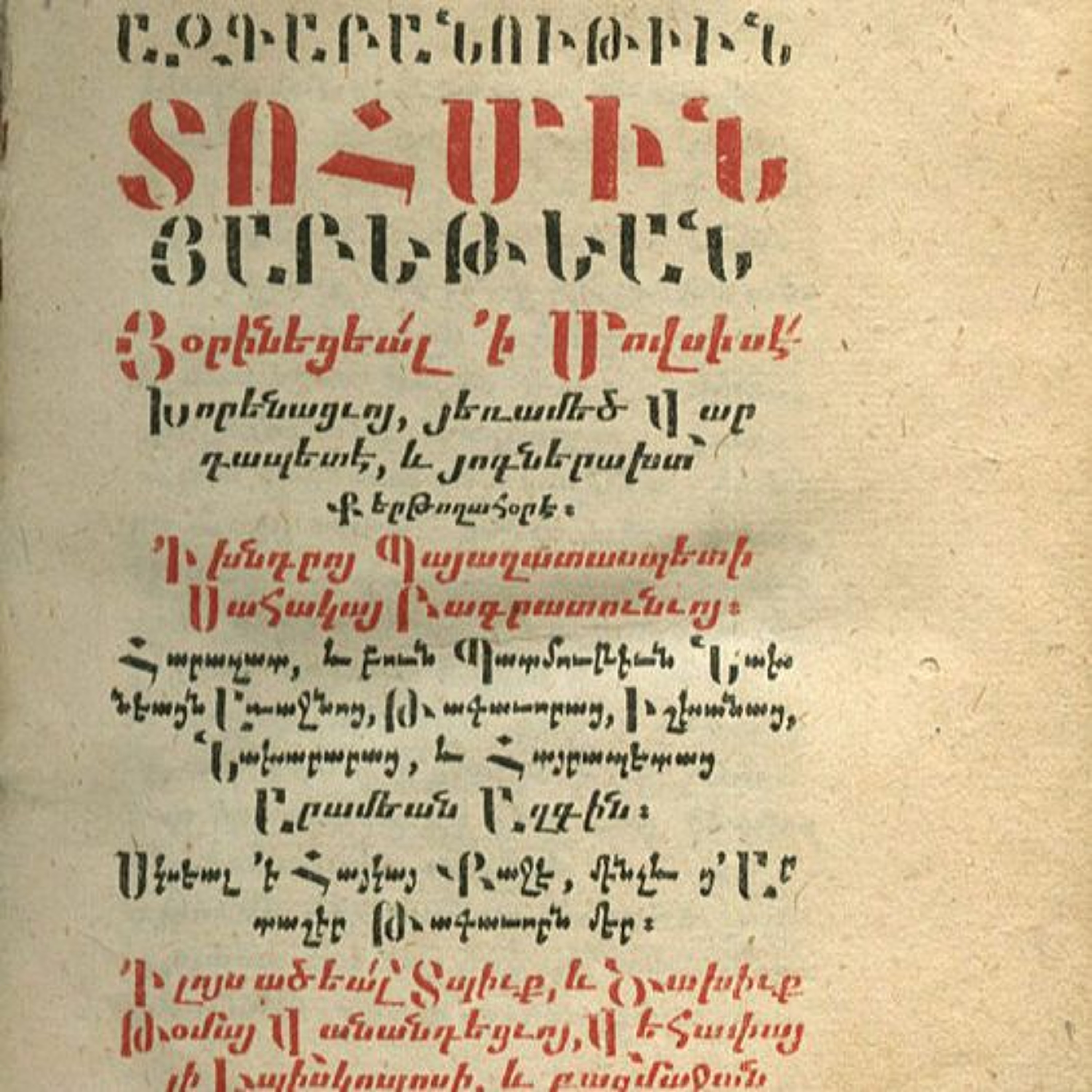
Ottoman History PodcastPorts and Printers Across the Armenian Diaspora | Sebouh AslanianE325 | A perennial question in Ottoman history is why printing was not fully adopted in the Middle East for the production of books until the late nineteenth century. Armenians, however, did start to print their books as early as the sixteenth century. In this episode, Sebouh Aslanian explains this rather sudden shift by telling the story of how the twin traumas of the Celali Rebellions and Shah Abbas’s scorched-earth campaigns against the Ottoman Empire spurred the mass migration of Armenians away from their traditional centers in the Eastern fringes of Anatolia, the Armenian Plateau and the Caucasus and toward ma...
2017-07-1842 min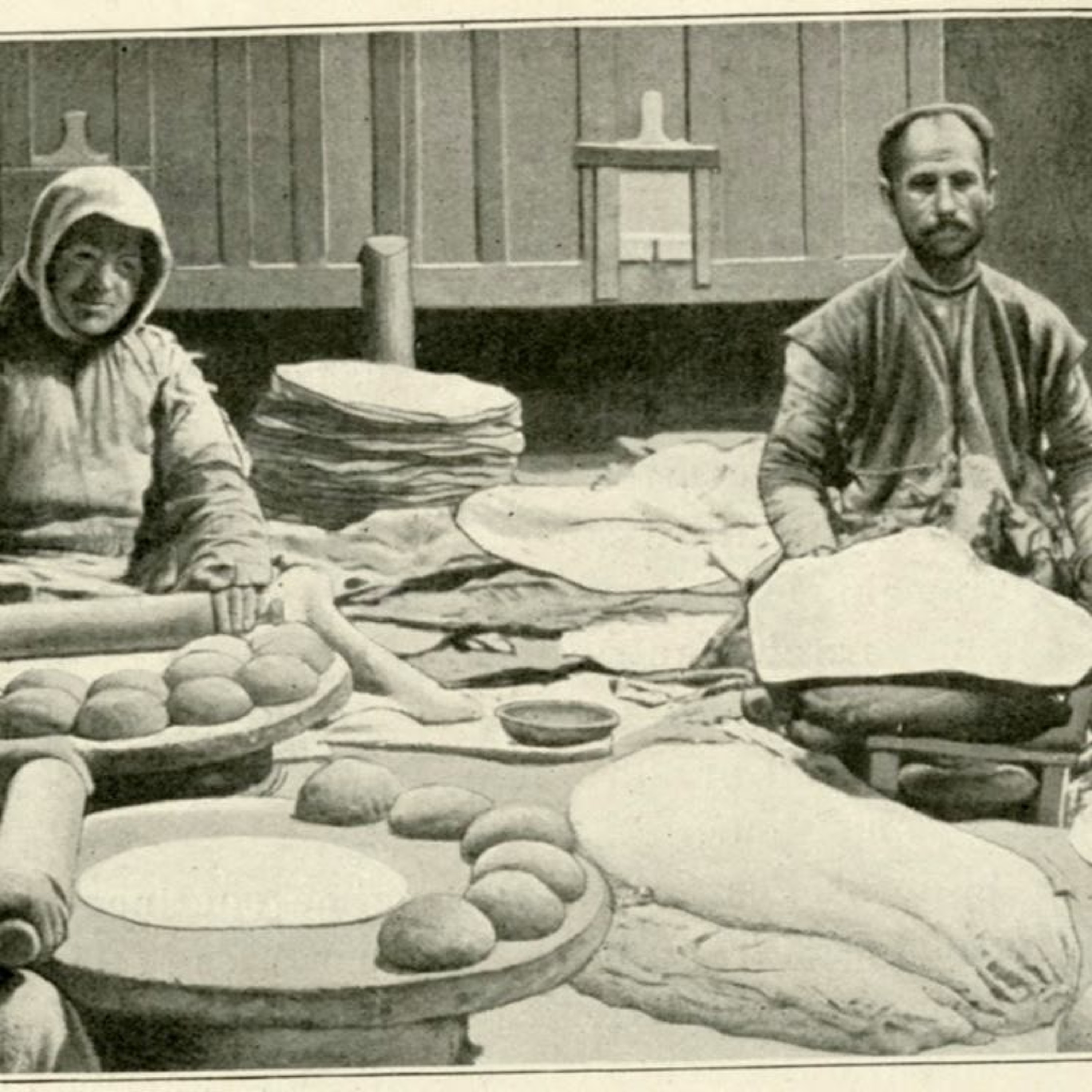
Ottoman History PodcastShared Histories of the Ottoman East | Yaşar Tolga Cora & Dzovinar DerderianE322 | This episode examines historical approaches to Armenians, Kurds, and Turks in the eastern provinces of Ottoman Anatolia. "Shared history" has been offered up as a corrective to the existing historiography's nationalist and often exclusionary approaches, but what does writing a "shared history" actually look like? Yaşar Tolga Cora and Dzovinar Derderian talk about their approaches in their recent 2016 edited volume, The Ottoman East in the Nineteenth Century: Societies, Identities and Politics. The volume discusses Trans-regional Connectivity; the fluidity of identities and loyalties, state and local politics; and the social history of space. They draw on the work to u...
2017-07-0133 min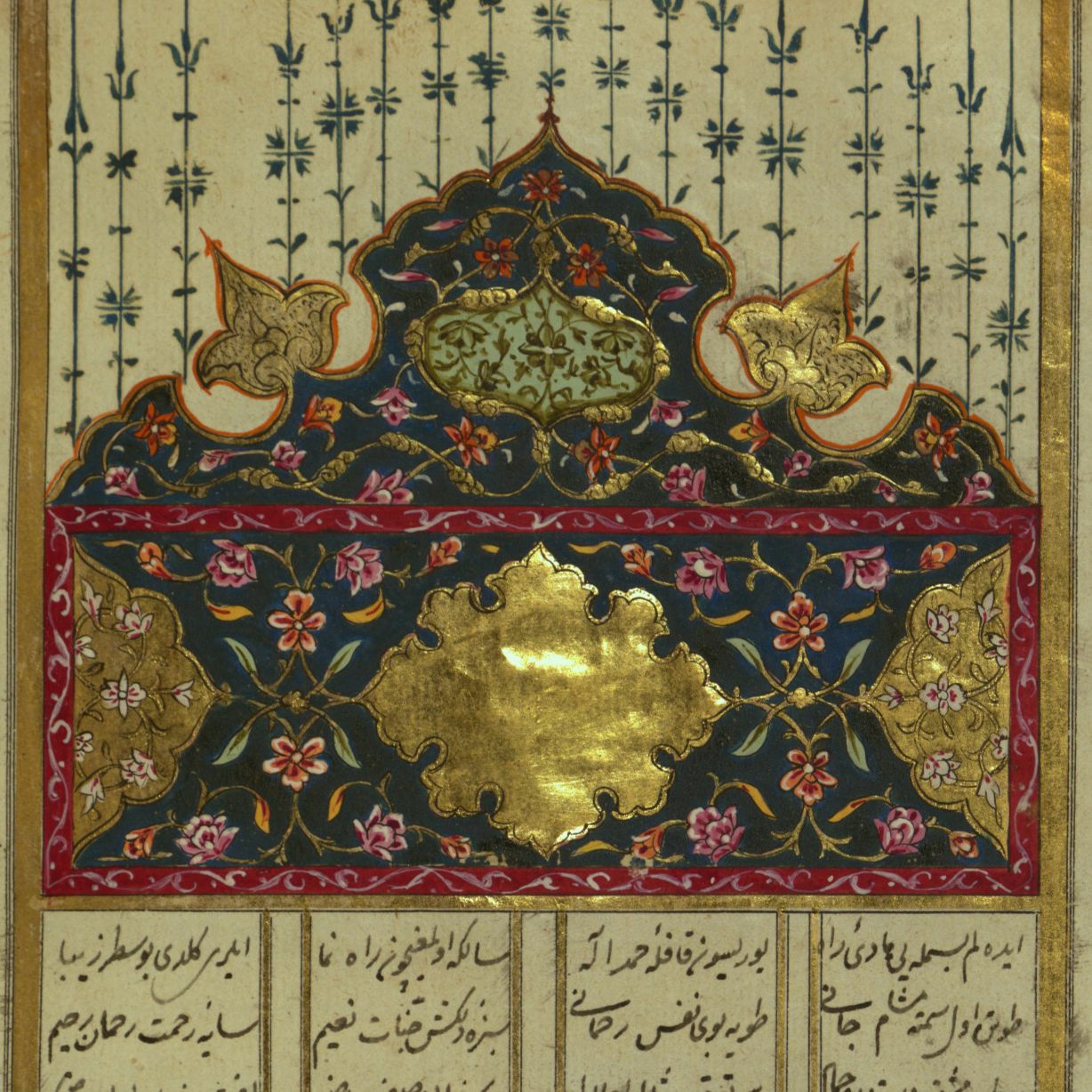
Ottoman History PodcastThe Ottoman Erotic | İrvin Cemil SchickE289 | What terms and ideas were considered erotic in early modern Ottoman literature, and what can studying them tell us about later historical periods and our own conceptions of the beauty, love, and desire? In this episode, we welcome İrvin Cemil Schick back to the podcast to discuss a project he is compiling with İpek Hüner-Cora and Helga Anetshofer: a dictionary called the "Erotic Vocabulary of Ottoman Literature."
More at http://www.ottomanhistorypodcast.com/2016/12/irvin-cemil-schick.html
İrvin Cemil Schick holds a PhD from the Massachusetts Institute of Technology and has taught inter alia at Harvard University, MIT, and İstanbul Şehir U...
2016-12-1843 min
The AskHistorians PodcastAskHistorians Podcast 077 - The End of World War One in the Middle East, Part 2The conversation with CptBuck continues as we move south from Anatolia and the new state of Turkey into the regions of Mesopotamia, Syria, and the Levant. The politics and conflicts which led to the borders and formation of the modern states of Iraq, Syria, Jordan, and Israel/Palestine are all discussed, as well as a quick digression into Egypt. We end with a discussion on whether the borders of these nations predestined them for future conflicts. (60mins) Join the discussion!
2016-12-171h 00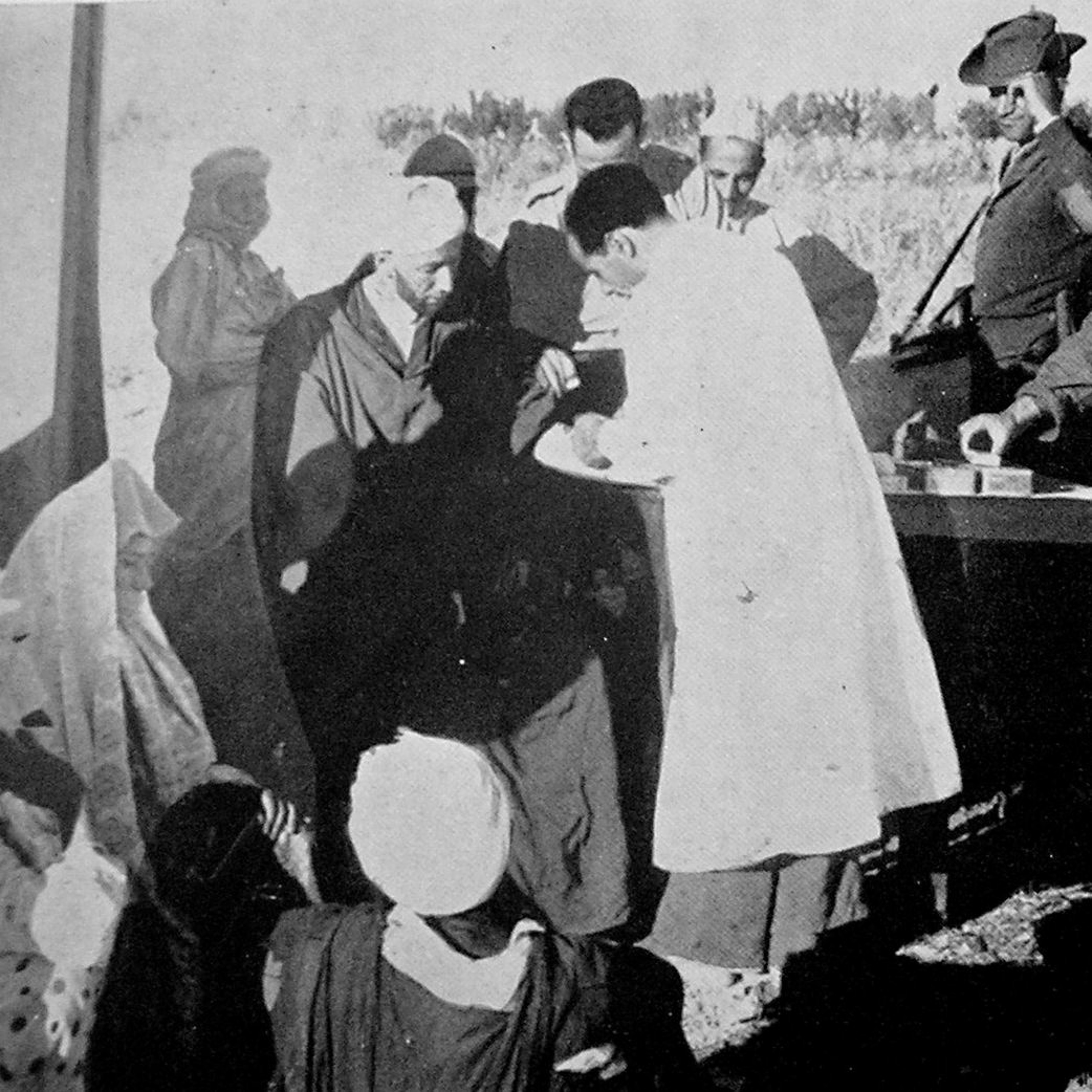
Ottoman History PodcastDecolonization, Health Care, and Humanitarianism in Algeria | Jennifer JohnsonE277 | The Algerian War is perhaps the most recognizable national and anti-colonial movement of the 20th century. From the iconic film “The Battle of Algiers” to Frantz Fanon's influential book The Wretched of the Earth, the violence of the Algerian fight for independence and the French reaction has marked depictions of not only the war but representations of Algerian history on the whole. In this podcast, however, we explore another battlefield of contention during the Algerian War: medicine and humanitarian relief. As our guest Jennifer Johnson demonstrates in her new monograph The Battle for Algeria (University of Pennsylvania Press, 2015), both the...
2016-10-3142 min
The Visual PastArmenian Photography in Ottoman Anatolia
with Armen T. Marsoobianhosted by Zoe Griffith
Download the podcast
Feed | iTunes | GooglePlay | SoundCloud
Interest in Ottoman photography has tended to focus on the orientalist gaze or the view from the imperial center. In this episode, Armen T. Marsoobian offers us the unique lens of the Dildilian family of Armenian photographers in provincial Anatolia. Around the turn of the twentieth century, the Dildilians worked to memorialize portraits of fragmenting families and to document everyday scenes in provincial cities such as Sivas, Samsun, and Merzifon. Marsoobian, himself a descendant of th...
2016-08-0400 min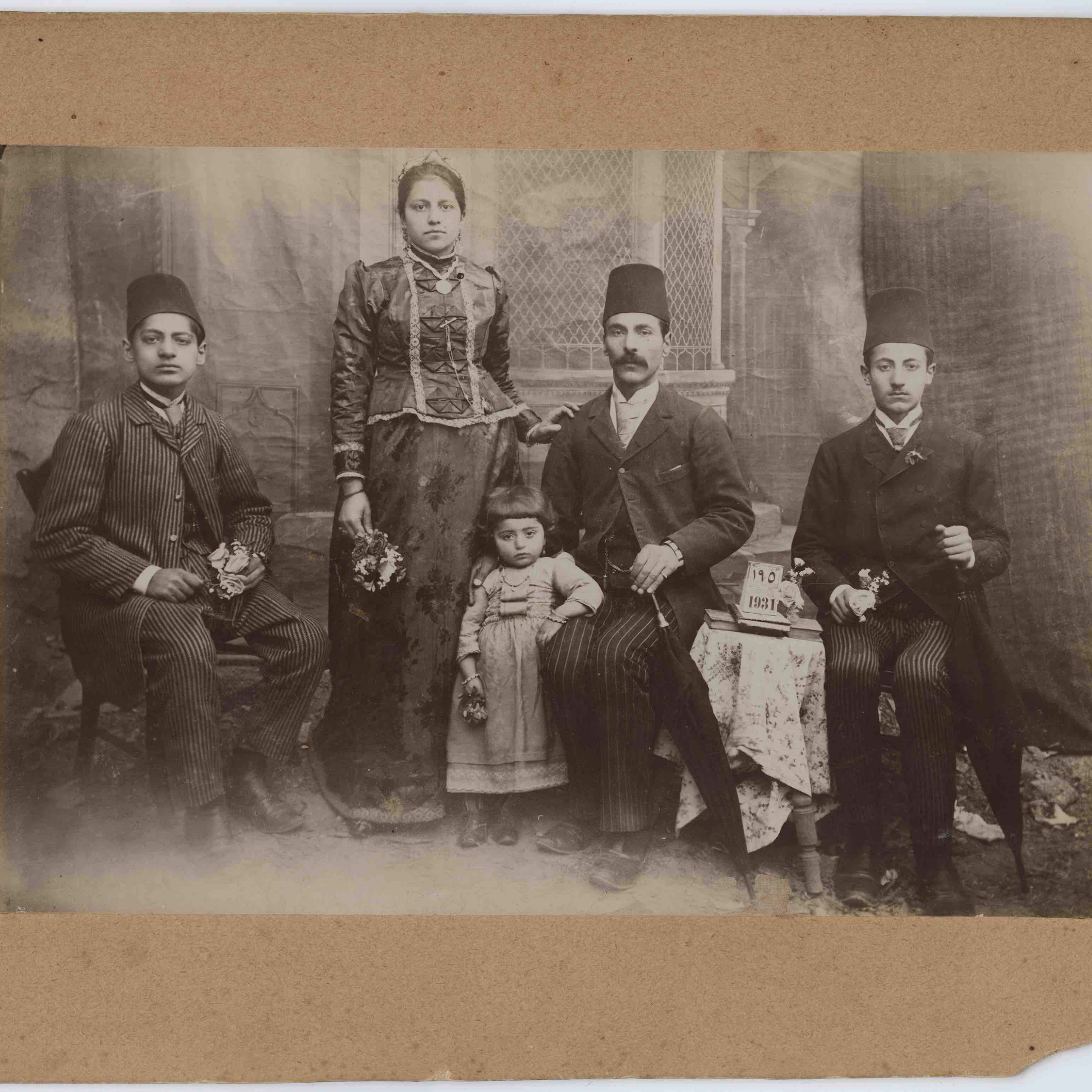
Ottoman History PodcastArmenian Photography in Ottoman Anatolia | Armen MarsoobianE255 | Interest in Ottoman photography has tended to focus on the orientalist gaze or the view from the imperial center. In this episode, Armen T. Marsoobian offers us the unique lens of the Dildilian family of Armenian photographers in provincial Anatolia. Around the turn of the twentieth century, the Dildilians worked to memorialize portraits of fragmenting families and to document everyday scenes in provincial cities such as Sivas, Samsun, and Merzifon. Marsoobian, himself a descendant of the Dildilians, has woven together the family's remarkable photographic archive along with their memoirs and oral histories, to describe how through ingenuity and professional...
2016-08-0455 min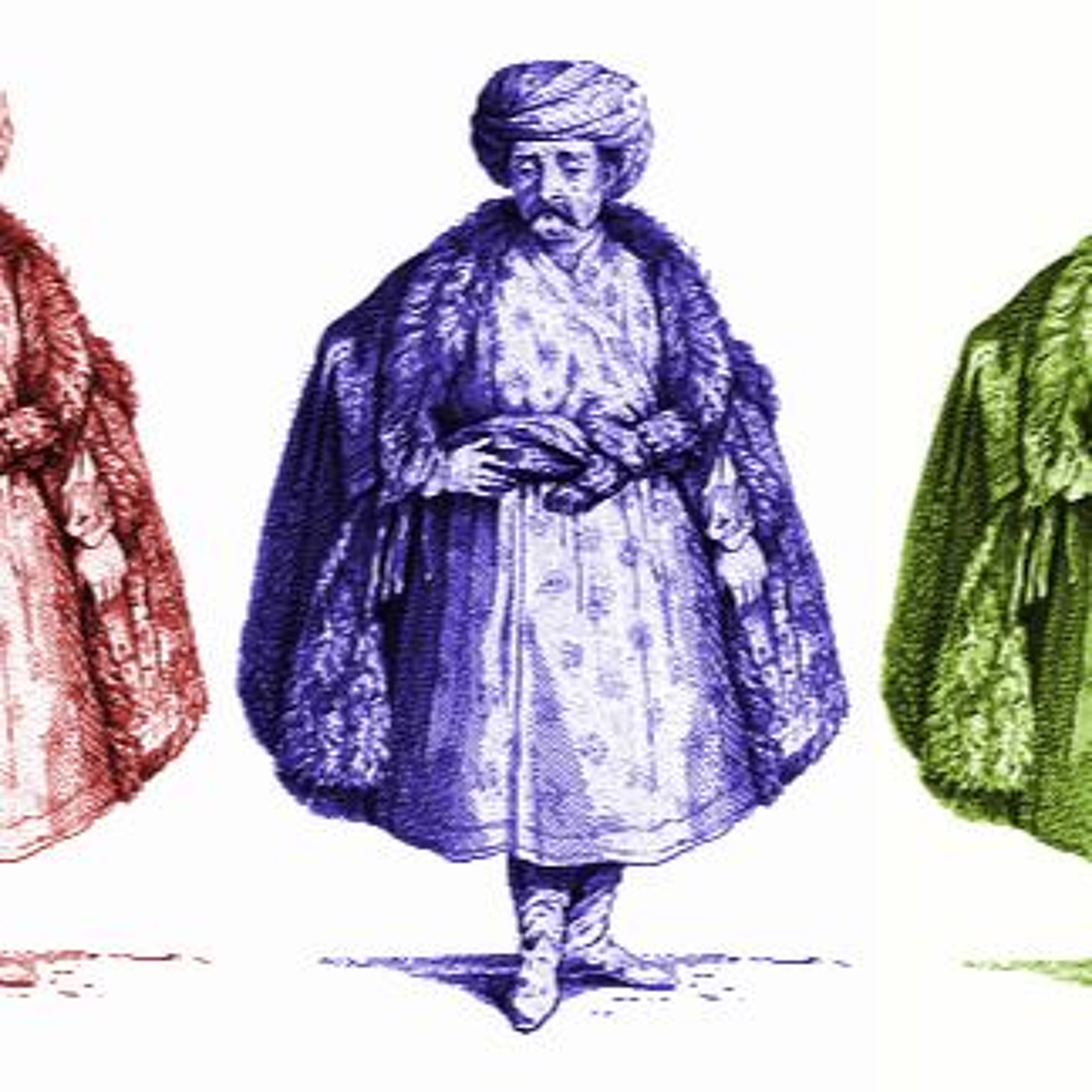
Ottoman History PodcastBobovius and the Republic of Letters | Michael TworekE250 | A man known as Wojciech Bobowski to some, Albertus Bobovius to others, and Ali Ufki to yet others, is one of the prime examples of an early modern intermediary operating in the seventeenth-century Ottoman Empire. In this podcast, we discuss with Michael Tworek the fascinating figure of the Bobovius, from his childhood in the Polish-Lithuanian Commonwealth, to his capture in a Tatar slave raid, to his numerous translations both from and to Ottoman Turkish. These included musical treatises, the translation of the New Testament, the Genevan Psalter and more. In particular, we focus on how Bobovius mediated and developed...
2016-07-2446 min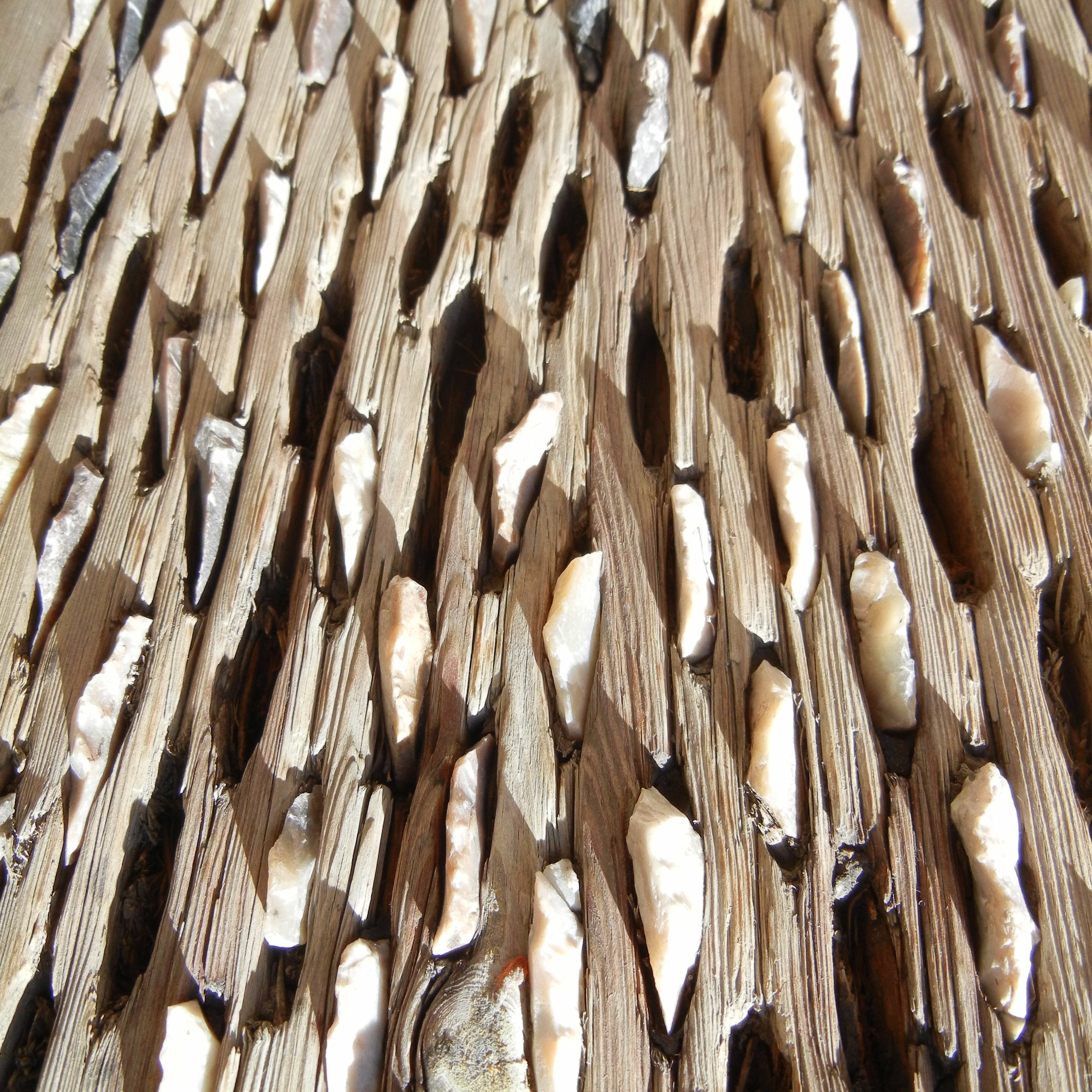
Ottoman History PodcastFoodways in Medieval Anatolia | Nicolas TrépanierE233 | At the heart of medieval political economies were a variety of practices, structures, and activities that revolved around the production and distribution of food. In this episode, Nicolas Trépanier discusses his research for Foodways and Daily Life in Medieval Anatolia, which examines life in the early Ottoman Empire through the lens of food and drink. We discuss diverse subjects from agrarian labor and temporality to religion and commerce in order to understand how people lived through what and how they ate.
More at: http://www.ottomanhistorypodcast.com/2016/03/food-medieval-anatolia.html
PARTICIPANTS
Nicolas Trépanier is Associate Professor of History at...
2016-03-2342 min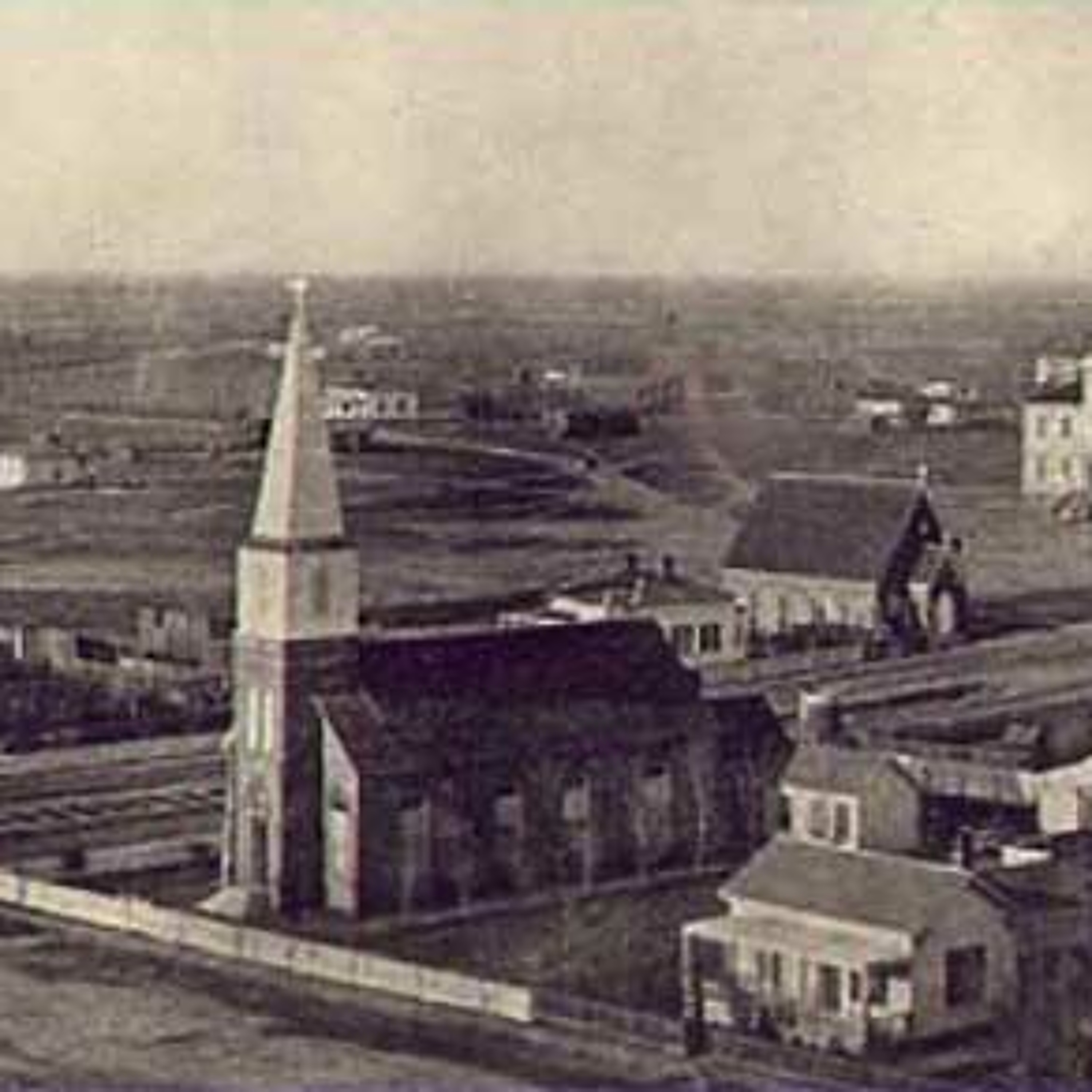
Ottoman History PodcastArmenian Migration during the Late Ottoman Period | David GutmanE190 | For more than a century, waves of Armenian migrants have come to the United States variously seeking economic opportunity or fleeing political violence and persecution. In this episode, Susanna Ferguson sits down with David Gutman to discuss his research on the origins of Armenian migration to the United States and elsewhere during the late Ottoman period, and they explore how shifts in migration patterns reflected the broader political shifts in the empire during its last decades.
More at http://www.ottomanhistorypodcast.com/2015/03/ottoman-armenian-migration-united-states.html
David Gutman is an Assistant Professor at Manhattanville College in Purchase, NY. He completed his...
2015-04-1148 min
History of Modern TurkeyKurdish Alevi Music and Migration
with Ozan Aksoy
hosted by Chris Gratien and Ceren Erdem
The songs and melodies of the Turkey's Alevi communities derive from a long history of song-making in Anatolia that is embedded in local geographies and indelibly tied to notions of worship and belonging. So what happens when, through migration and media, that music enters entirely new contexts? In this episode, we sit down with ethnomusicologist and musician Ozan Aksoy to discuss his research on Kurdish Alevi music in diasporic contexts and hear him perform some of his favorite selections live in the OHP studio.
« Click fo...
2015-03-1900 min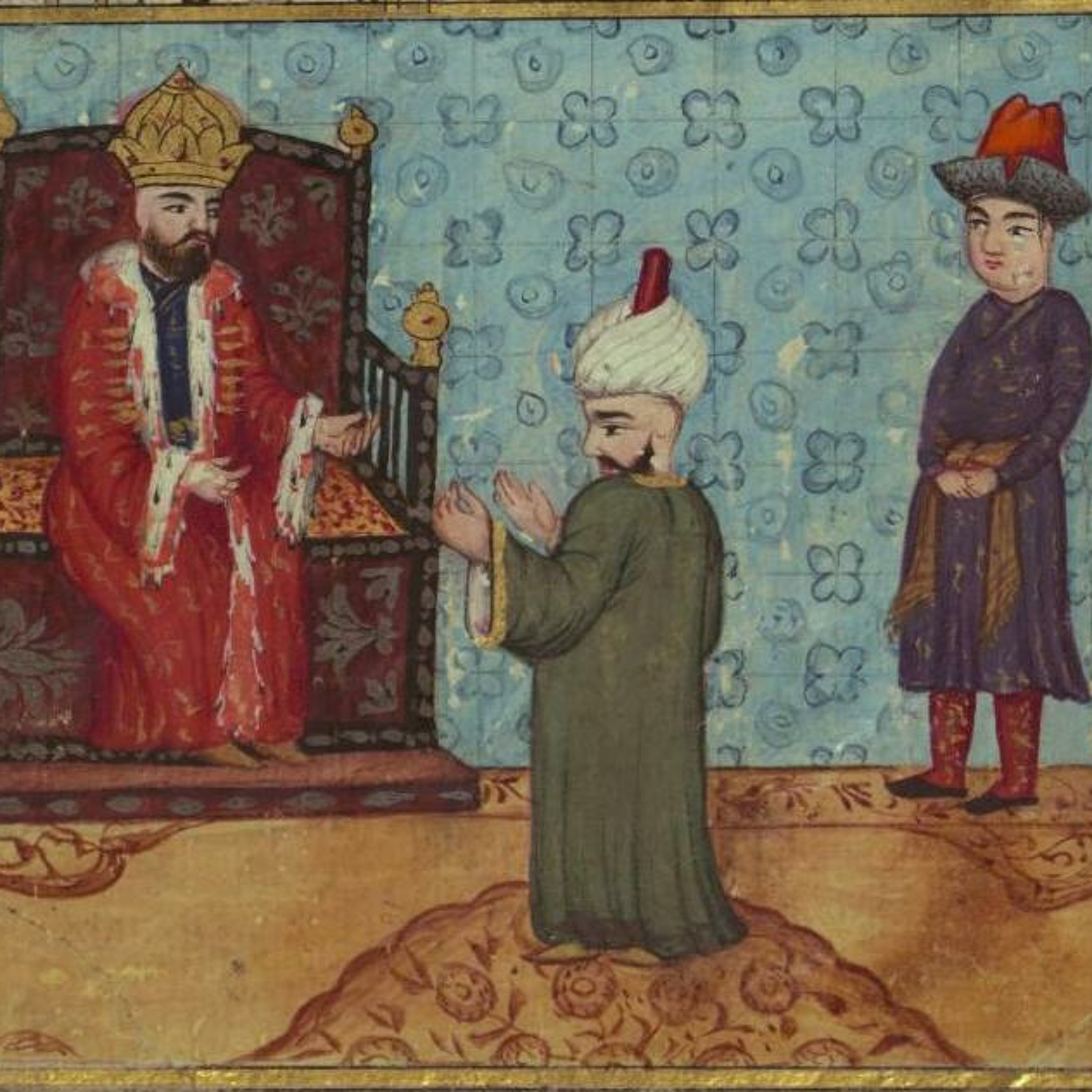
Ottoman History PodcastNew Perspectives on Medieval Anatolia | Sara Nur YildizE186 | Students of Ottoman history might tend to think of the Medieval Period in Anatolia as a precursor to the Ottoman, in other words, reading the region's medieval past through the teleological lens of the Ottoman rise. However, recent scholarship on Medieval Anatolia, especially the Seljuk and Mongol periods, has moved towards a different approach that argues for the study of this complex geography and period in its own right. In this episode, Sara Nur Yıldız makes the argument for Medieval Anatolia and explores new developments in the political, social, and cultural history of the field.
More at: ht...
2015-03-1342 min
Women, Gender, and Sex in the Ottoman WorldReconstituting the Stuff of the Nation
with Lerna Ekmekçioğlu
hosted by Chris Gratien
The World War I period irrevocably changed the life of Ottoman Armenians and ultimately heralded the end of Christian communities throughout most of Anatolia. However, following the Ottoman defeat in the war, the brief Armistice period witnessed efforts by Armenians in Istanbul to reconstitute their community in the capital. In this episode, Lerna Ekmekçioğlu explores these efforts and in particular activities to locate and gather Armenian orphans and widows dislocated by war and genocide.
Lerna Ekmekçioğlu is Assistant Professor of History at MIT...
2014-06-2700 min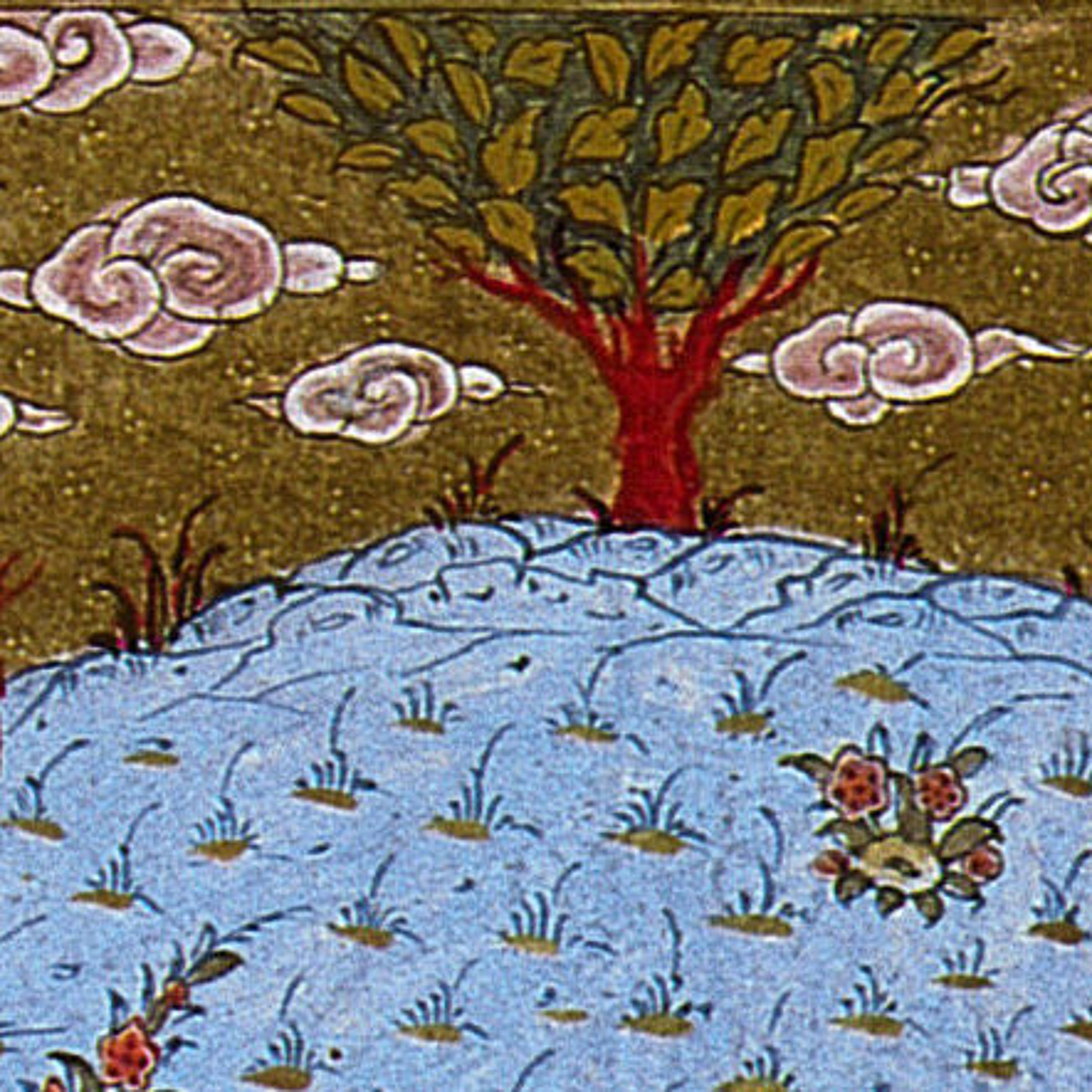
Ottoman History PodcastBeyond Heterodoxy: Alevis in Ottoman Anatolia | Ayfer Karakaya-StumpE148 | The history of Anatolia's Alevi or Kizilbash community has long been written by outsiders who have variously portrayed them as mysterious, heretical, heterodox, or uncivilized. Alevism has been often juxtaposed with the high religion would-be orthodox Sunni practice. This historical understanding of Alevis has continued to influence the way these communities are represented in the present. In this episode, Ayfer Karakaya-Stump challenges this binary. Drawing on previously unexamined sources produced by the Ottoman Alevi community itself, she seeks a new road to understanding Alevism and the relationship of Alevi communities with the Ottoman and Safavid states, Sufi movements of...
2014-03-0851 min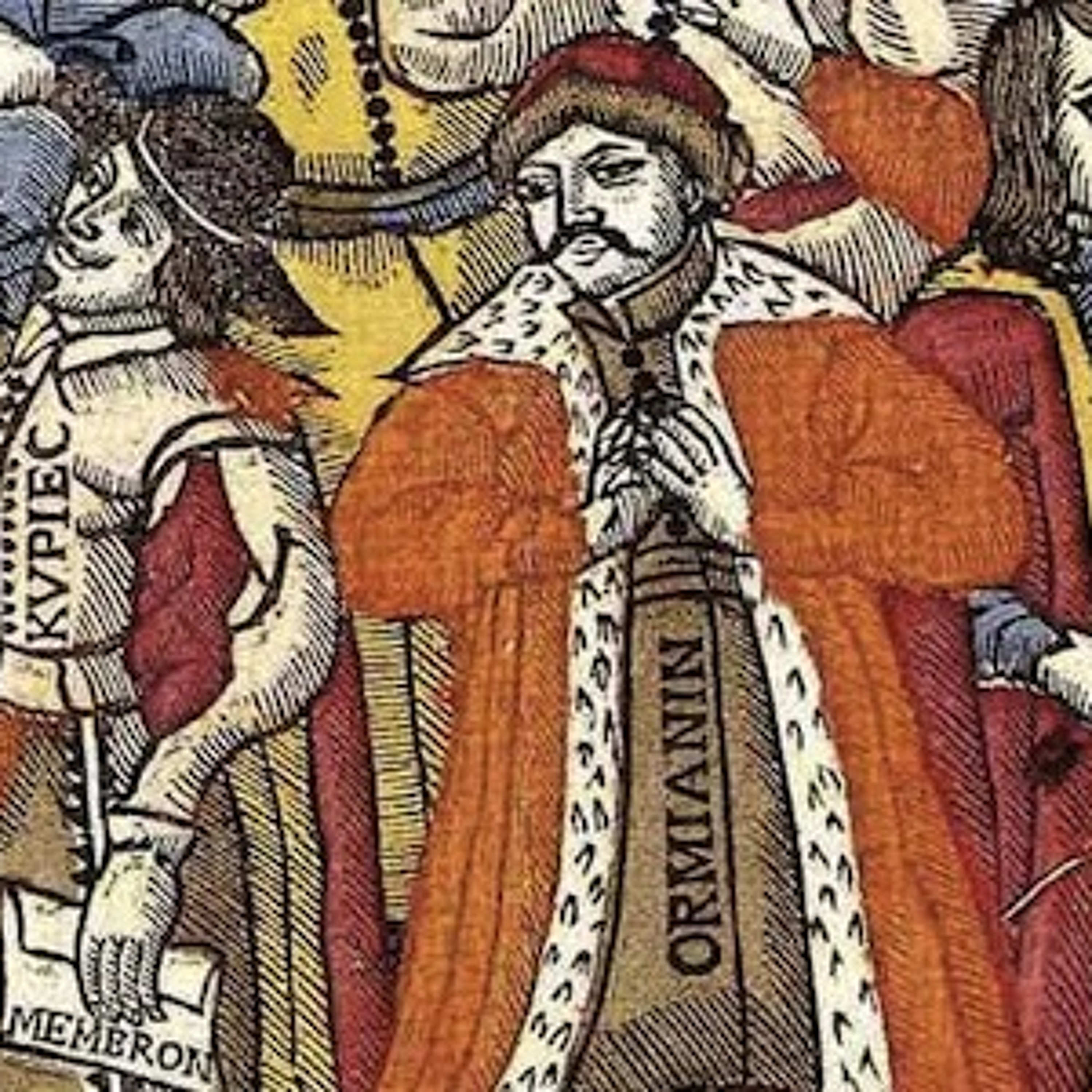
Ottoman History PodcastAn Armenian Merchant from Poland Visits Safavid Persia | Michael PołczyńskiE048 | The early modern era was a period of tremendous fluidity in terms of borders of identities. In this podcast, we discuss the life and times of Sefer Muratowicz, an Armenian merchant born in Ottoman Anatolia during the late sixteenth century who settled in the Polish-Lithuanian Commonwealth and became an envoy to the Safavid Shah in Persia through his role as a merchant. Sefer left an account of his visit, which our guest Michael Polczynski has translated and analyzed. The account provides information about Sefer's journey as well as his diplomatic and mercantile activities, painting a picture in the process...
2014-03-0431 min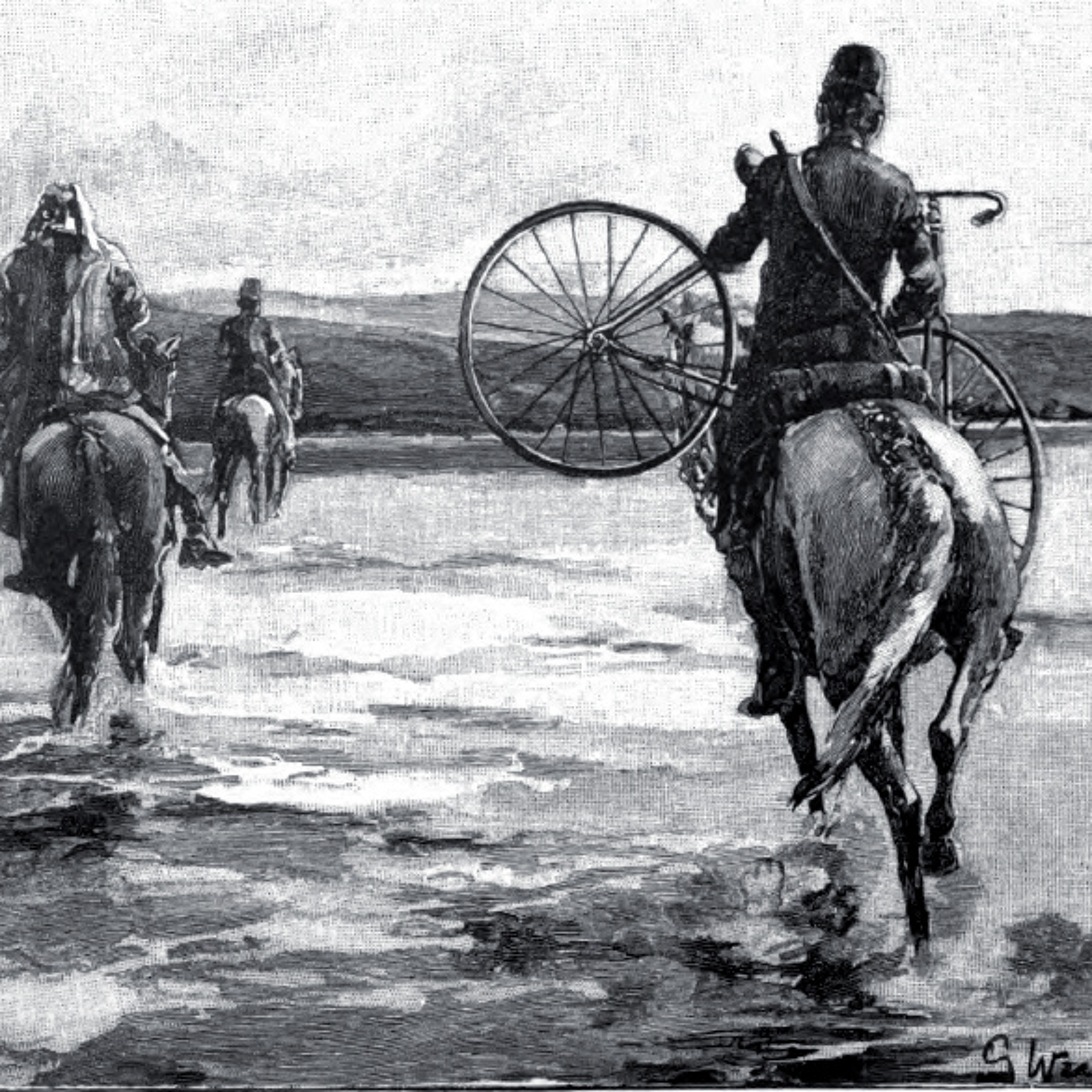
Ottoman History PodcastAcross Anatolia on a Bicycle | Daniel PontilloE137 | What does it mean to wield or possess a certain technology? What are the limits to associational claims to technical expertise or superiority? In this podcast, Daniel Pontillo considers these cultural and social dimensions of technology through a study of the travel narrative Across Asia on a Bicycle, in which two American men set out at in the heat of the late nineteenth-century bicycle craze to use their new technology to tame the rugged Asian geography. In our discussion, we focus on the first leg of their trip, which was carried out in Ottoman Anatolia
2014-03-0231 min
Osmanlı TarihiAnadolu'ya Bir Göç Öyküsü
Mehtap Çelik
112. Mersin Atlılar Köyü
Eski Çerkez Göçmen Evi, Atlılar Köyü (2010)
Osmanlının 19. yy’da karşılaştığı en büyük sosyal ve politik meselelerden biri şüphesiz ki muhacir sorunudur.
Rus devleti, eski Osmanlı toprakları olan Kafkasya ve Kırım’a yerleşmeye yönelik bir siyaseti benimseyip bölgedeyayıldıkça, yerli Müslüman nüfusa kaçmaktan başka bir çare kalmamıştı. Osmanlı, devlet nüfuzunun sınırlı olduğu seyrek nüfuslu bölgelere, yeni gelenleri yerleştirmek için yoğun çaba sarfetti. Ciddi sı...
2013-07-0400 min